

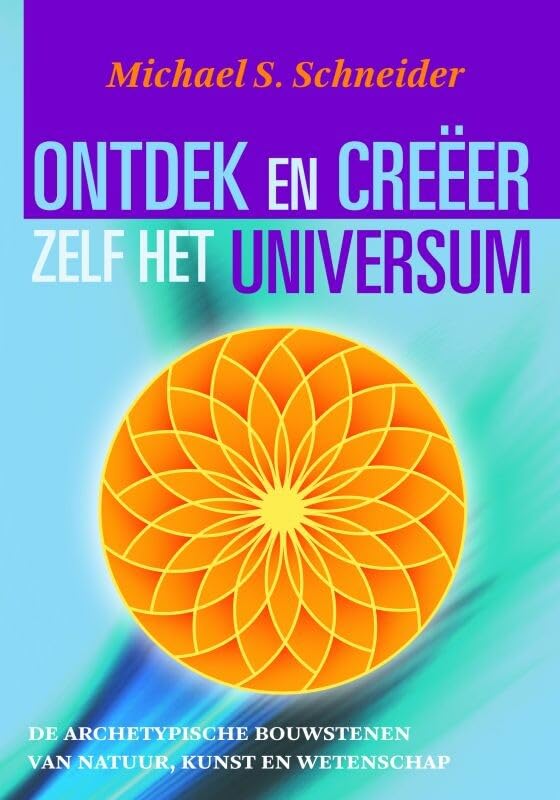 Dutch
Dutch 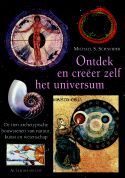
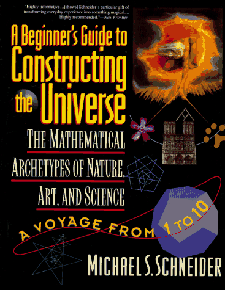
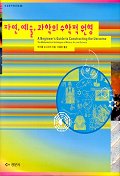 Korean
Korean"In this book you will find something that cannot be obtained elsewhere,
a complete introduction to the geometric code of nature,
written and illustrated by the most perceptive of its modern investigators."
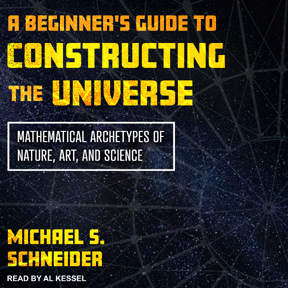
Click here to read some collected
Quotations from "A Beginner's Guide to Constructing the Universe"
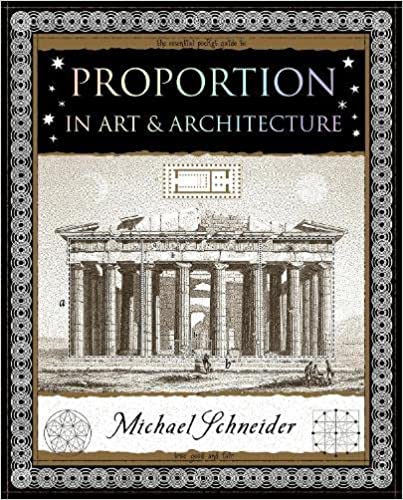
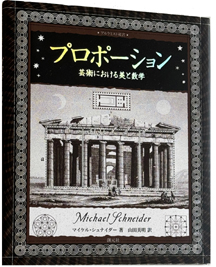 Japanese
JapaneseAvailable only on this website:
by Michael S. Schneider
B.S. Mathematics
M.Ed. Mathematics and Science Education
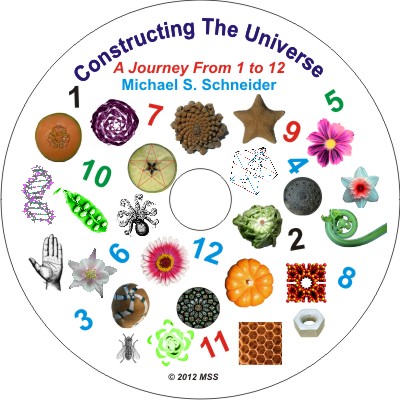
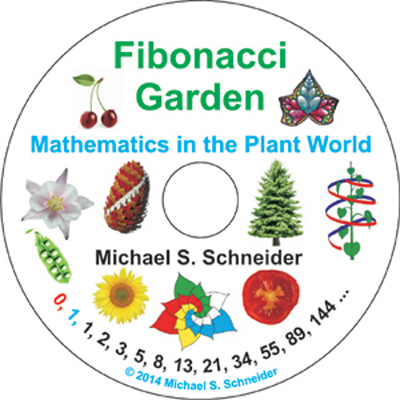
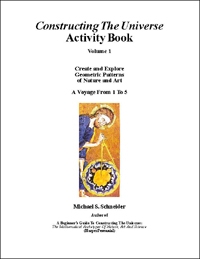
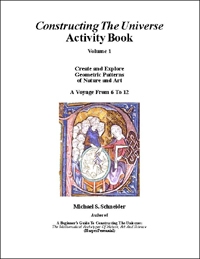
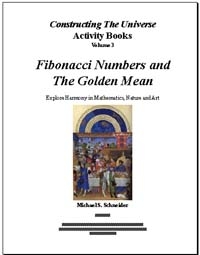
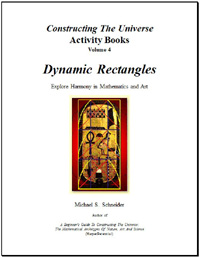
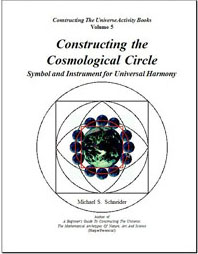
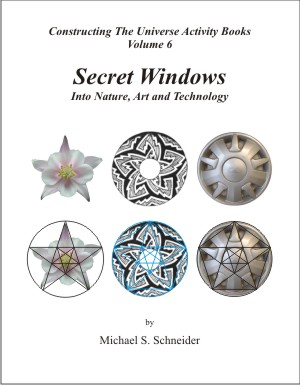
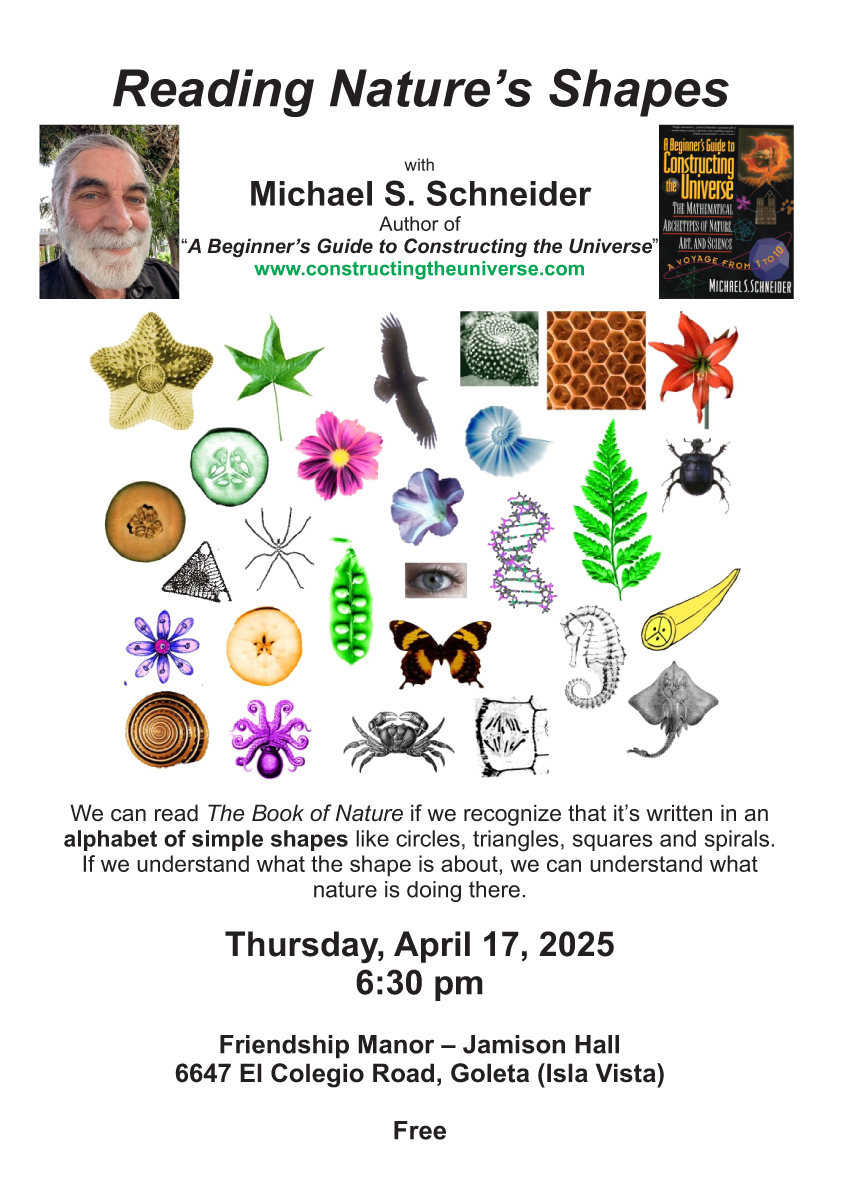
"Don't let schooling interfere with your education."
-- Mark Twain
"Education is the kindling of a flame, not the filling of a vessel."
— Socrates, "On Personal Service," 469-399 BCE.
"Education is not the filling of a pail, but the lighting of a fire."
-- William Butler Yeats
"With all thy getting, get understanding."
-- Proverbs 4:7
"Intelligence plus character -- that is the goal of true education."
-- Dr. Martin Luther King Jr.
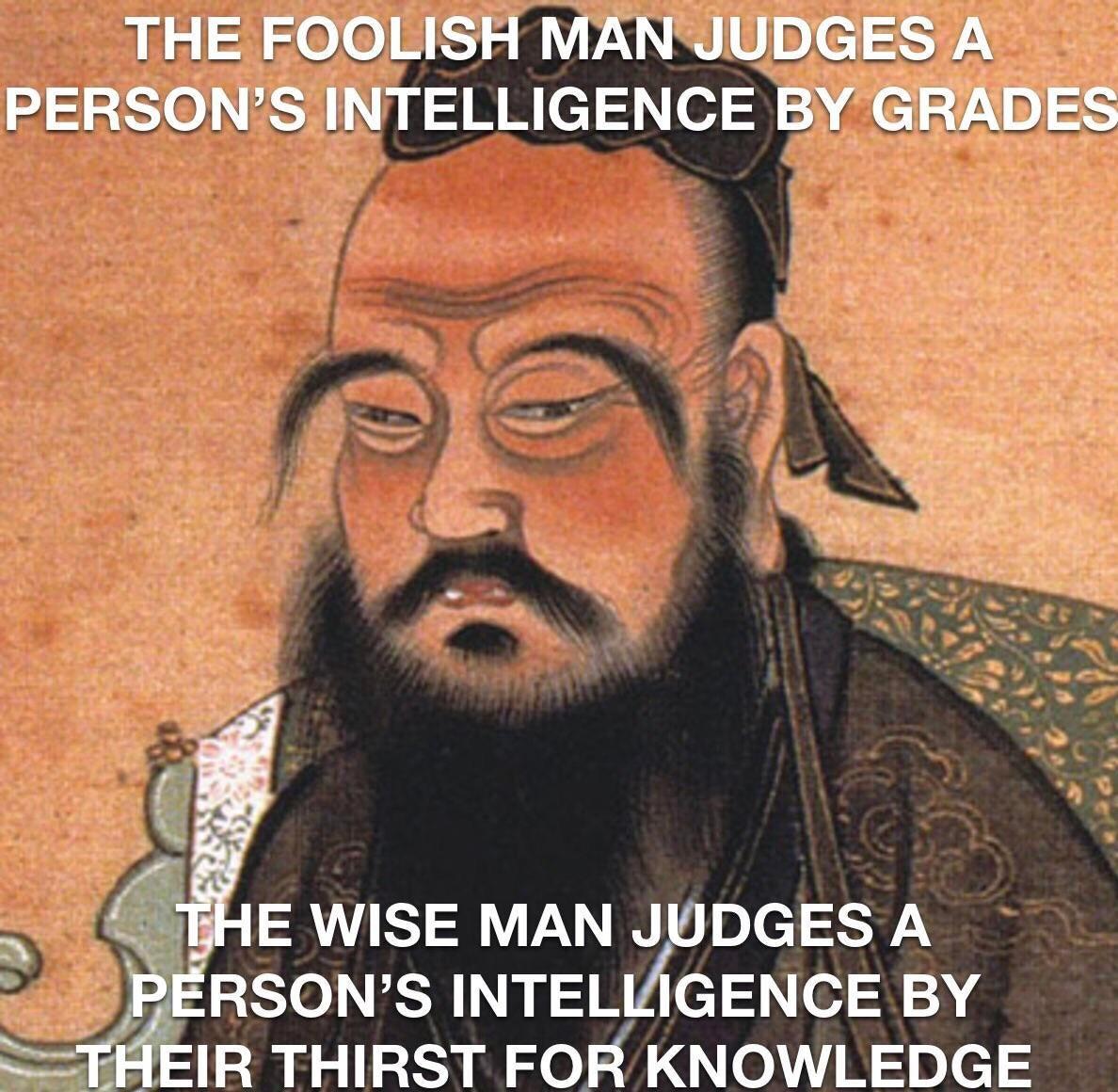
"When we try to pick out anything by itself, we find it hitched to everything else in the universe."
-- John Muir
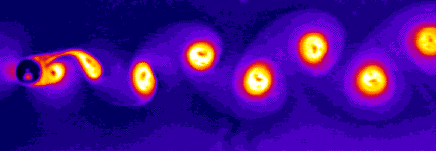
 Numbers and Shapes: The Universal Language of Nature and Art
Numbers and Shapes: The Universal Language of Nature and Art
The numbers 1 through 12 and their practical and symbolic language of geometric patterns in nature, art and culture.
One and Two: Unity and Polarity
Three: Tri-Unity
Four: Fair and Square
Five: The Flag of Life (Pentagram, Fibonacci Numbers and Golden Section)
Six: The Joy of Six
Seven: The Virgin Number
Eight: Periodic Renewal
Nine: The Horizon
Ten: New Unity
Eleven: The PassageWay
Twelve: Cosmic Dozens
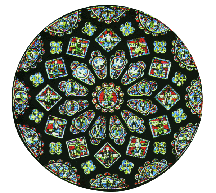 Beautiful Proportions in Sacred Arts, Crafts and Architecture
Beautiful Proportions in Sacred Arts, Crafts and Architecture
Worldwide traditions looked to the archetypal patterns of mathematics and nature for their compelling designs.
Natural Design and Sacred Art
The Art of Root-Rectangles
The Art of Polygons
Worldwide Healing Art
Sacred Windows
Principles of Sacred Architecture
Design A Cathedral
Design Sacred Pottery
Design Egyptian Jewelry
Golden Section Design
Islamic Patterns and Escher's Art
Constructing The Universe: Traditions of Mathematical Wisdom
The Geometer's Creation Myth
The Geometry of Fruits & Vegetables
Pythagorean Arithmetic: Figurate Numbers
The Tetraktys
Magic Squares
Knotted-Rope Geometry
The Five Platonic Solids
The Cosmological Circle
Music of the Spheres
The Spiral Path of Conflict Resolution
The Solar System Mandala
Ancient Metrology: Straightening Out Sacred Measure
An appreciation of sacred traditions and related topics.
Egyptian Mysteries
The Eleusinian Mysteries
The School of Pythagoras
Savitri by Sri Aurobindo
Chakra Symbolism Around the World
Geometric Construction as Meditation
Essays on the Web
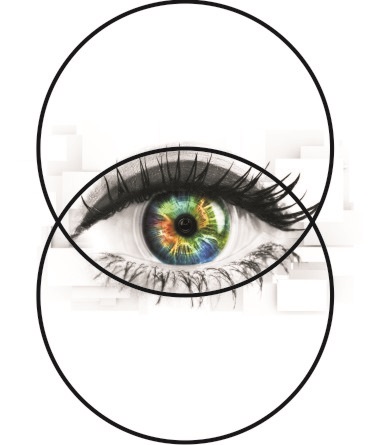
Interview with Michael Schneider in the Temenos Academy Review:
A Beginner’s Guide to Symbolic Geometry:
An Interview with Professor Michael S. Schneider
The Geometry of Rose Windows:
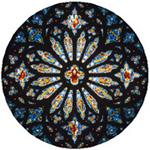 Cathedral of St. John The Divine (New York City)
Cathedral of St. John The Divine (New York City)
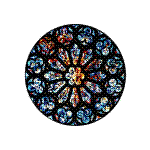
Grace Cathedral (San Francisco, California)
Golden Rectangle geometry of the Babylonian Shamash Tablet
The Geometry of a Herter Brothers Cabinet
Click on this picture to see some geometric watercolors I've painted.
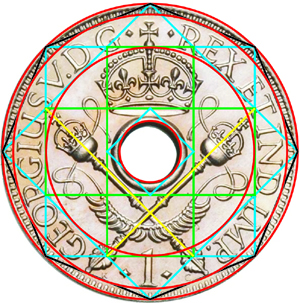
Click on the coin to read an article where I contributed some geometric analyses:
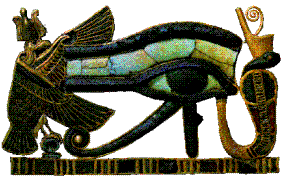
Egyptian Mathematics: See how the ancient Egyptians multiplied without a "times-table" the way modern computers do.
Michael speaks about Fibonacci Numbers in Nature in Golden Gate Park (beginning @ 3:42 min)
Sacred Geometry of Egyptian Art, an illustrated talk given at a conference about ancient knowledge in 2009.
"Composing in the Round: Polygons in Traditional Art" at the The Prince's Foundation School of Traditional Arts in London 19 June 2019
"The Geometer's Breakfast: Cosmic Proportions in a Humble Meal" at the Fourth John Michell Symposium in London 22 June 2019
Julie Motz of KWMR Radio (Point Reyes Station, CA) interviews Michael about numbers and more March 19, 2015 (53 minutes)
Red Ice Radio of Gothenburg, Sweden, an interview with Michael by Henrik Palmgren July 11, 2010
Eric Tomb of Booktown on KVMR radio interviews Michael about numbers May 25, 2010
Walter Cruttenden and Geoff Patino of the Binary Research Institute interview Michael about numbers, nature, art and ancient philosophy here. March 2008
Hear an interview with Michael on the Voice Of America program "Our World" 27 December 2003
Click here to hear a review of "A Beginner's Guide To Constructing The Universe" regarding mathematics education.
Click here to hear a review (podcast or .mp3) by Jeffrey Millburn at Omni Art Salon about using the book for developing awareness.
Click here to listen to Documentary Film Maker Elizabeth Upton speak about Michael's work in an interview about "Sacred Geometry" on Mike Hagen's Radio Show.
Bruce Rawles interviews Michael in 1997, Grass Valley, CA
Michael presented an illustrated lecture at The Prince's Foundation School of Traditional Arts in London, England, on June 19, 2019
showing how geometry has been used around the world in a variety of cultures over fifty centuries:
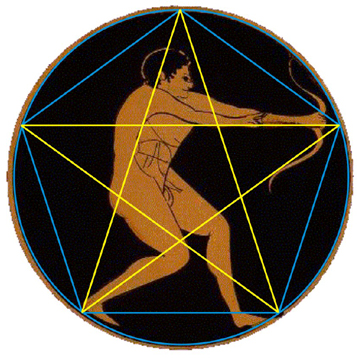
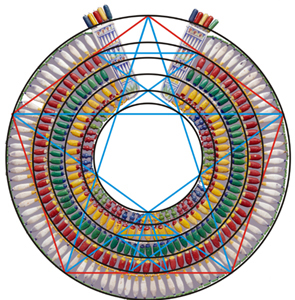
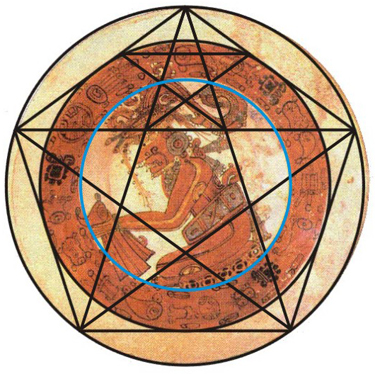
Mathematics is rarely associated with art these days, and their connection is almost never taught to art students. Yet, the greatest works of art, crafts, design and architecture of many cultures and times most certainly used these ideas. And while geometry — aka spatial relationships -– is included in every definition of artistic composition, its application and psychological impact on the viewer are poorly understood. It's quite simple yet quite profound in its effects for feelings of harmony and rhythm.
"And since geometry is the right foundation of all painting, I have decided to teach its rudiments and principles to all youngsters eager for art..."
-- Albrecht Dürer (1471 - 1528, Course in the Art of Measurement 1525)
See Michael's presentation here
Michael was a presenter at
The Fourth John Michell Symposium
London, 22 June 2019
"The Geometer's Breakfast"
Cosmic Proportions in a Humble Meal
Sponsored by the Temenos Academy
The Temenos Academy is an educational charity which aims to offer
education in philosophy and the arts
in the light of the sacred traditions of east and West.
Click on the painting to see Michael's presentation.
The Geometer's Breakfast is the name of a watercolor painting by John Michell. Depicting a humble meal, an egg on toast, it actually contains profound cosmic proportions.
It models the Cosmological Circle diagram (see workshop below) which represents the order of the universe and the numerical code that underlies it.
The Geometer's Breakfast is the name of a watercolor painting by John Michell. Depicting a humble meal, an egg on toast, it actually contains profound cosmic proportions.
It models the Cosmological Circle diagram (see workshop below) which represents the order of the universe and the numerical code that underlies it.
It contains all the relevant numbers, measures, shapes, proportions and musical harmonies found in nature.
It reconciles all opposites and the disparate elements that comprise it.
It is an image of paradise, a symbol of Divine Wisdom restored to Earth.
It's found in ancient monuments, worldwide architectural designs, and city planning.
It served as the pattern and instrument of statecraft in stable civilizations which sought to attract happiness, blessings, justice and prosperity.
In this presentation, Michael will reveal the geometry behind the painting and the significance of the numbers within it.
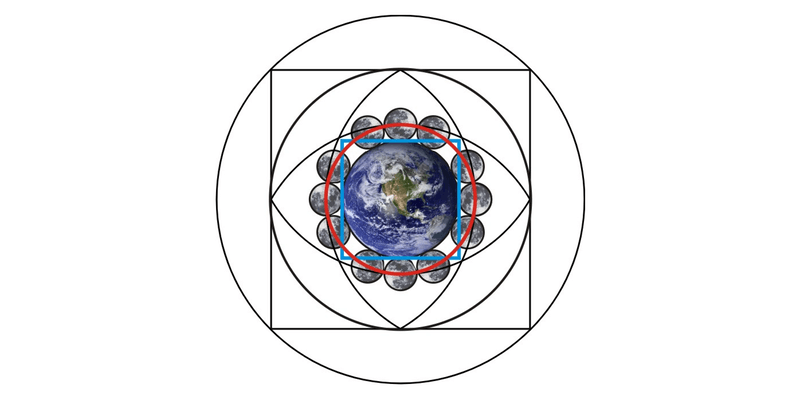
The Cosmological Circle Diagram contains all the relevant numbers, measures, shapes, proportions and musical harmonies found in nature.
Described as an image of paradise, of universal harmony, a symbol of Divine Wisdom restored to Earth, the diagram appeared as a revelation, as it traditionally does, to Michael’s friend,
John Michell.
In this workshop, Michael Schneider, ably assisted by master geometer Adam Tetlow,taught participants the steps of its geometric construction using compass and straightedge.
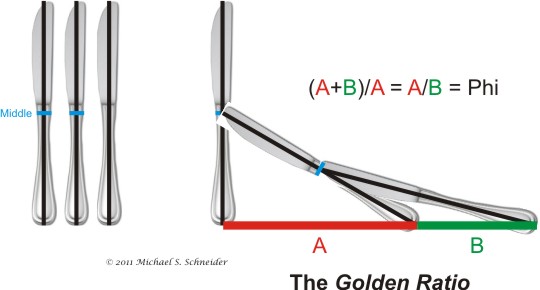
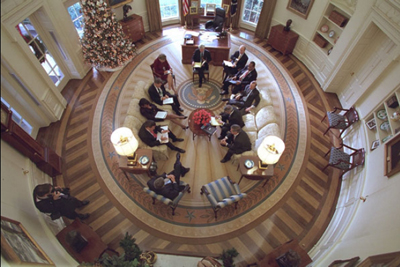
Here's something interesting to ponder:
Geometry within a painting about the geometric creation of the universe!
What is the interesting geometric relationship between the two important circles? Click on the picture to find out...
"When He prepared the heavens, I was there:
when He set a compass upon the face of the depth..." Proverbs 8:27
In the late 1980s I wrote many articles and created posters and teacher's editions for many educational magazines for children, including Super Science.
Click on the picture below to see an article I had fun writing and designing called The Secret Powers of Seeds.
Welcome to modern ...
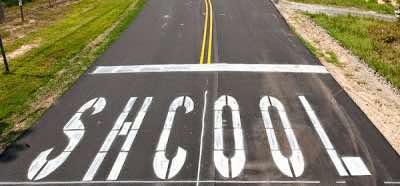

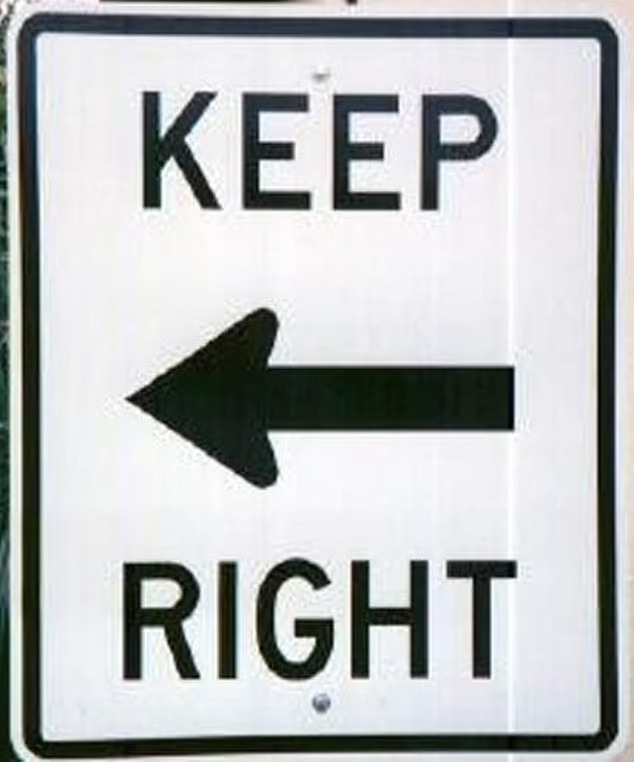
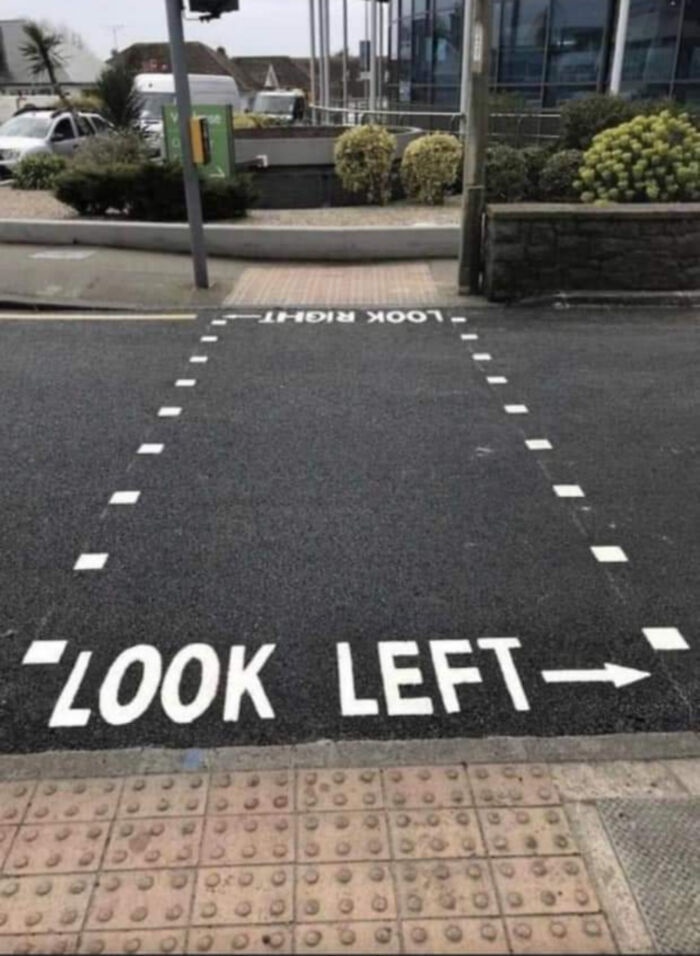

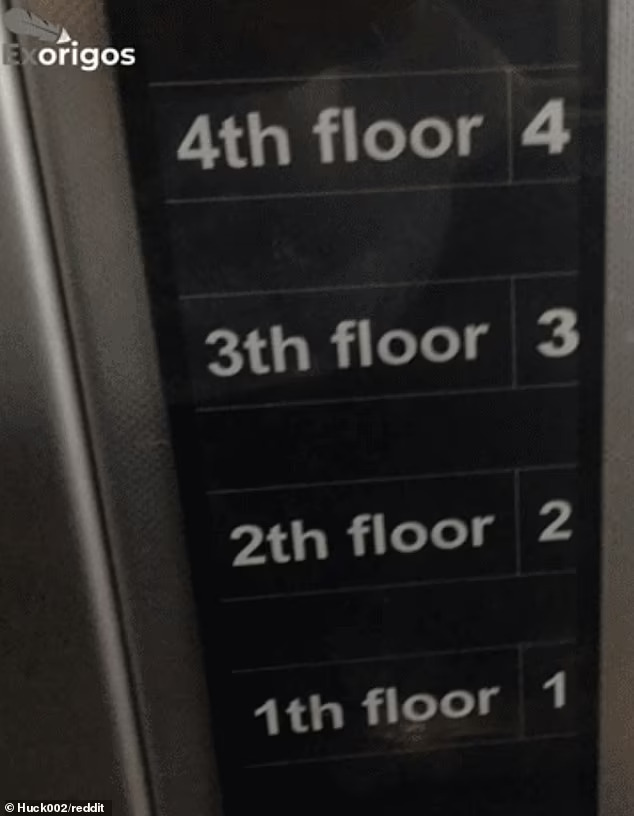
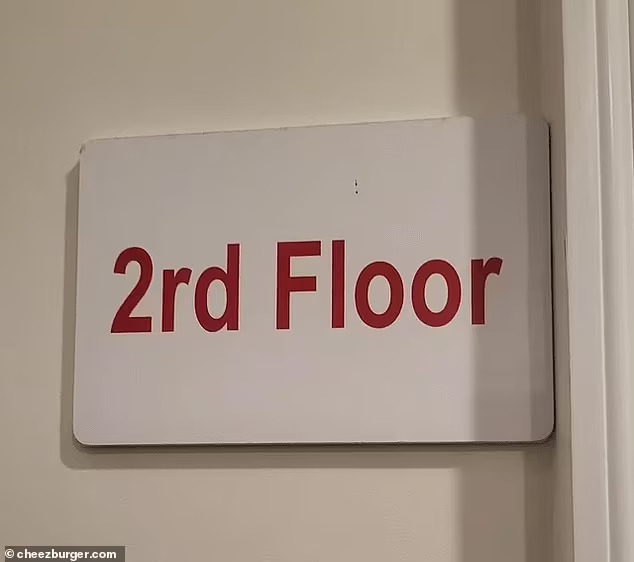
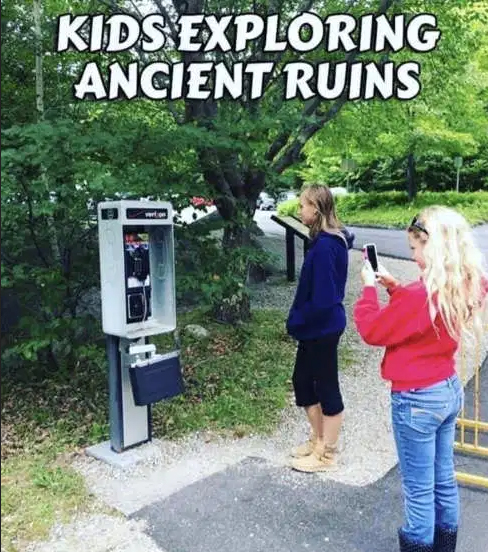
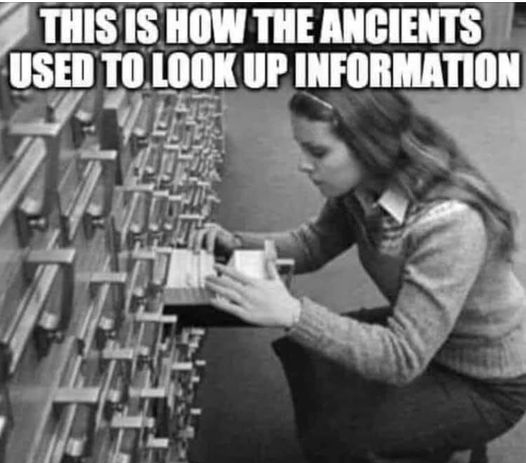
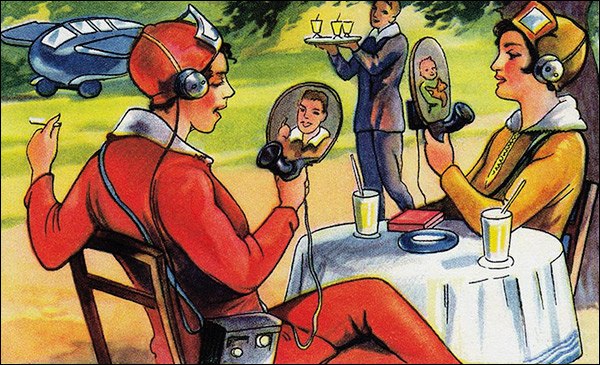
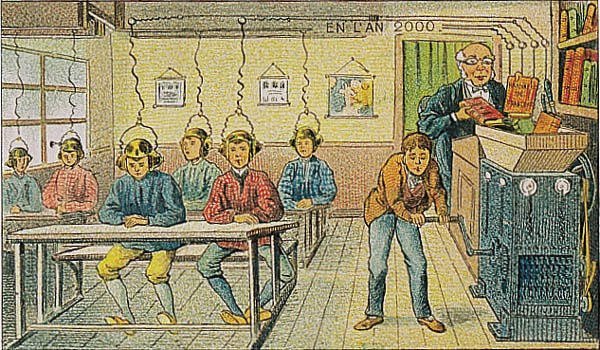
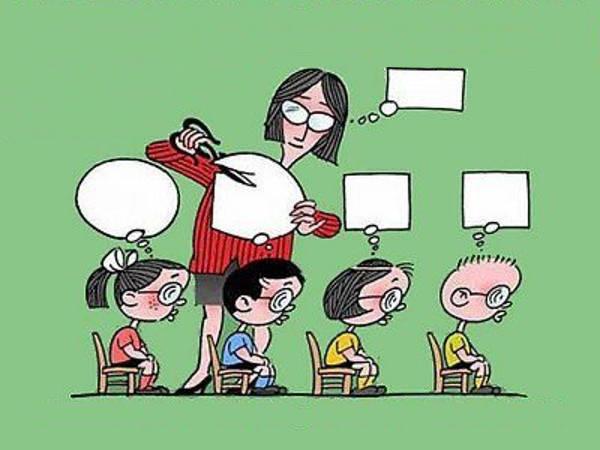
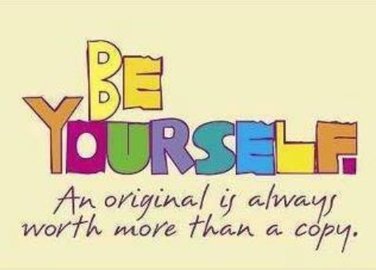
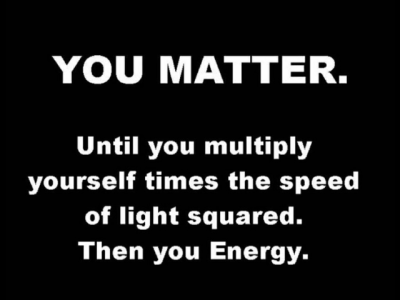
"Progress might have been alright once, but it has gone on too long."
More quotes from -- Ogden Nash
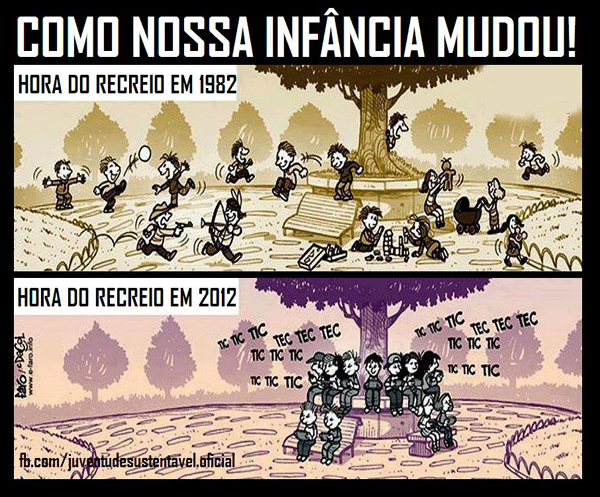

 China
China
“[The aim of public education is not] to fill the young of the species with knowledge and awaken their intelligence. . . .
Nothing could be further from the truth. The aim . . . is simply to reduce as many individuals as possible to the same safe level,
to breed and train a standardized citizenry, to put down dissent and originality. That is its aim in the United States…”-- H. L. Mencken (1880-1956) in 1924
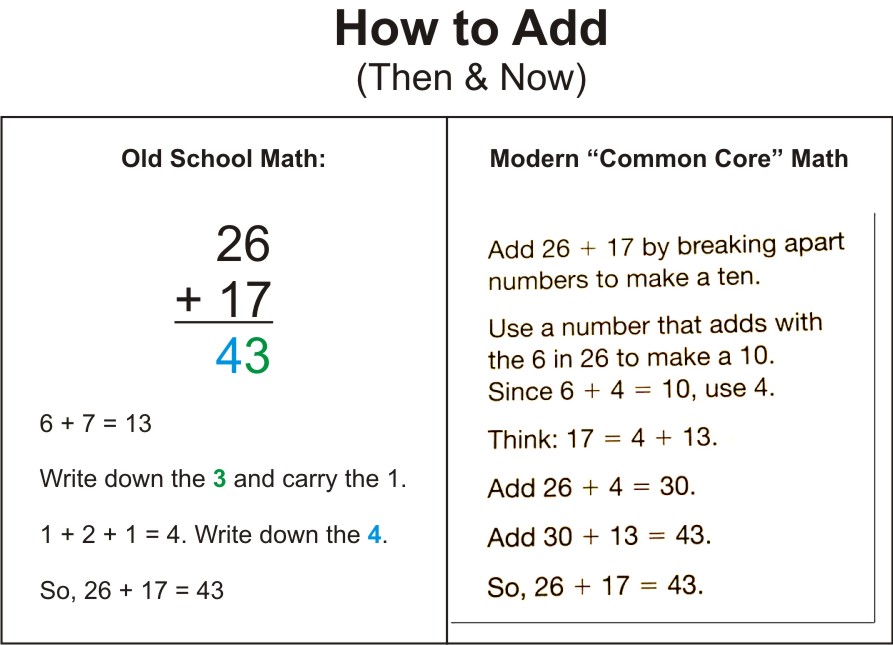
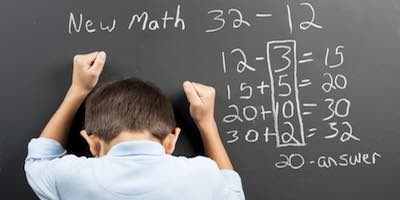

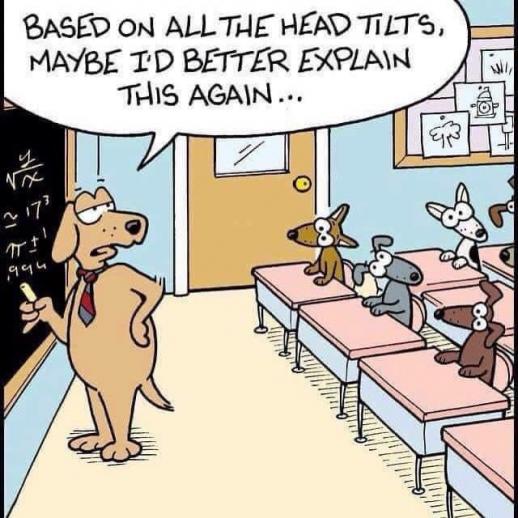

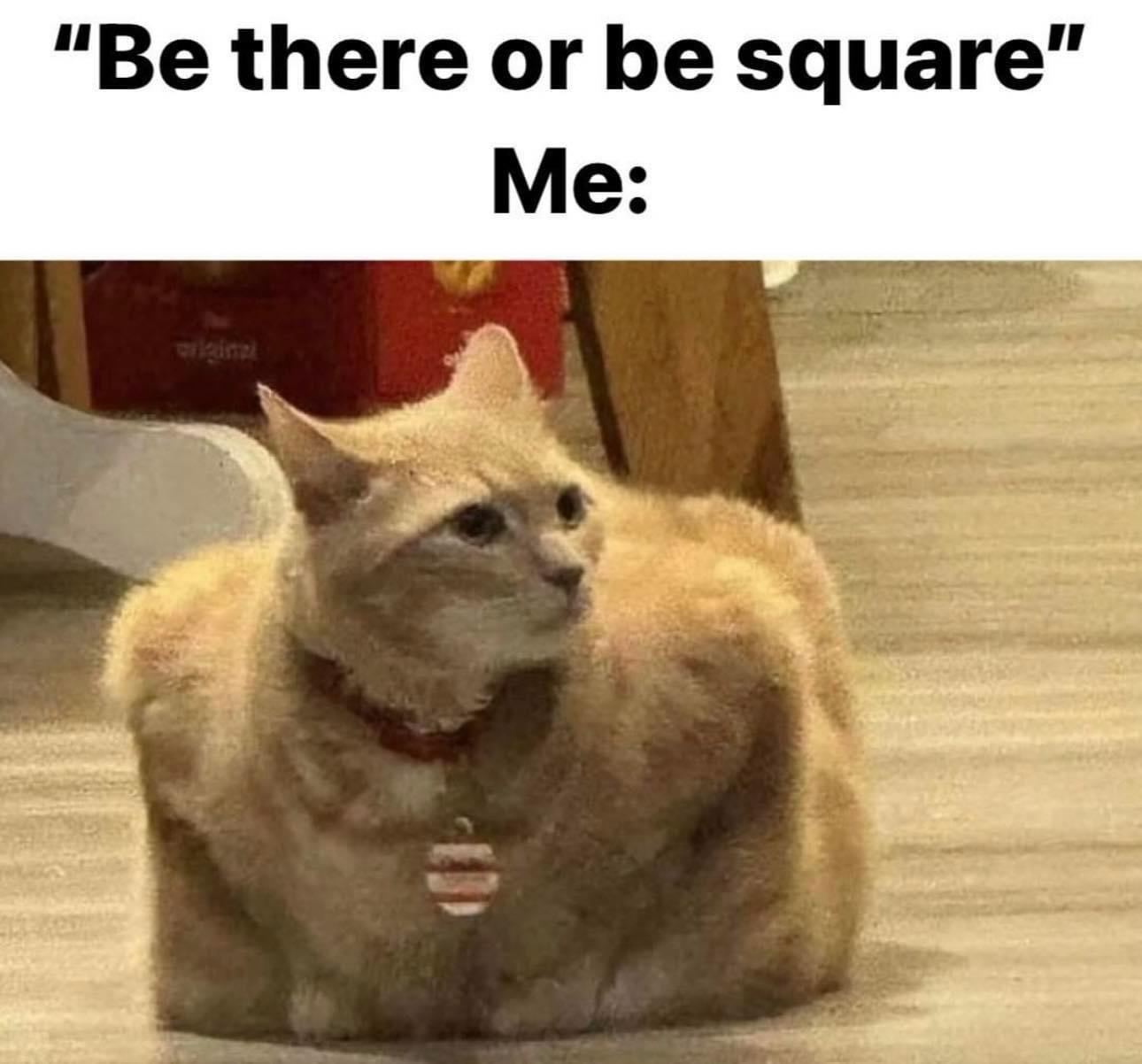
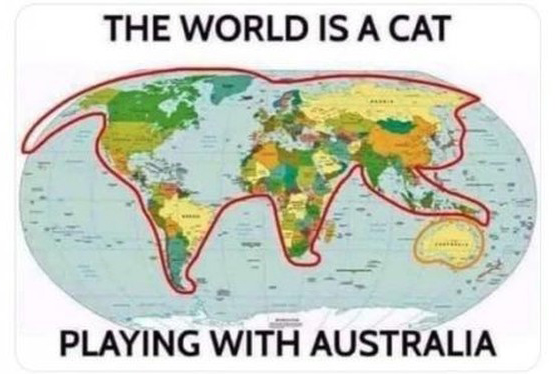

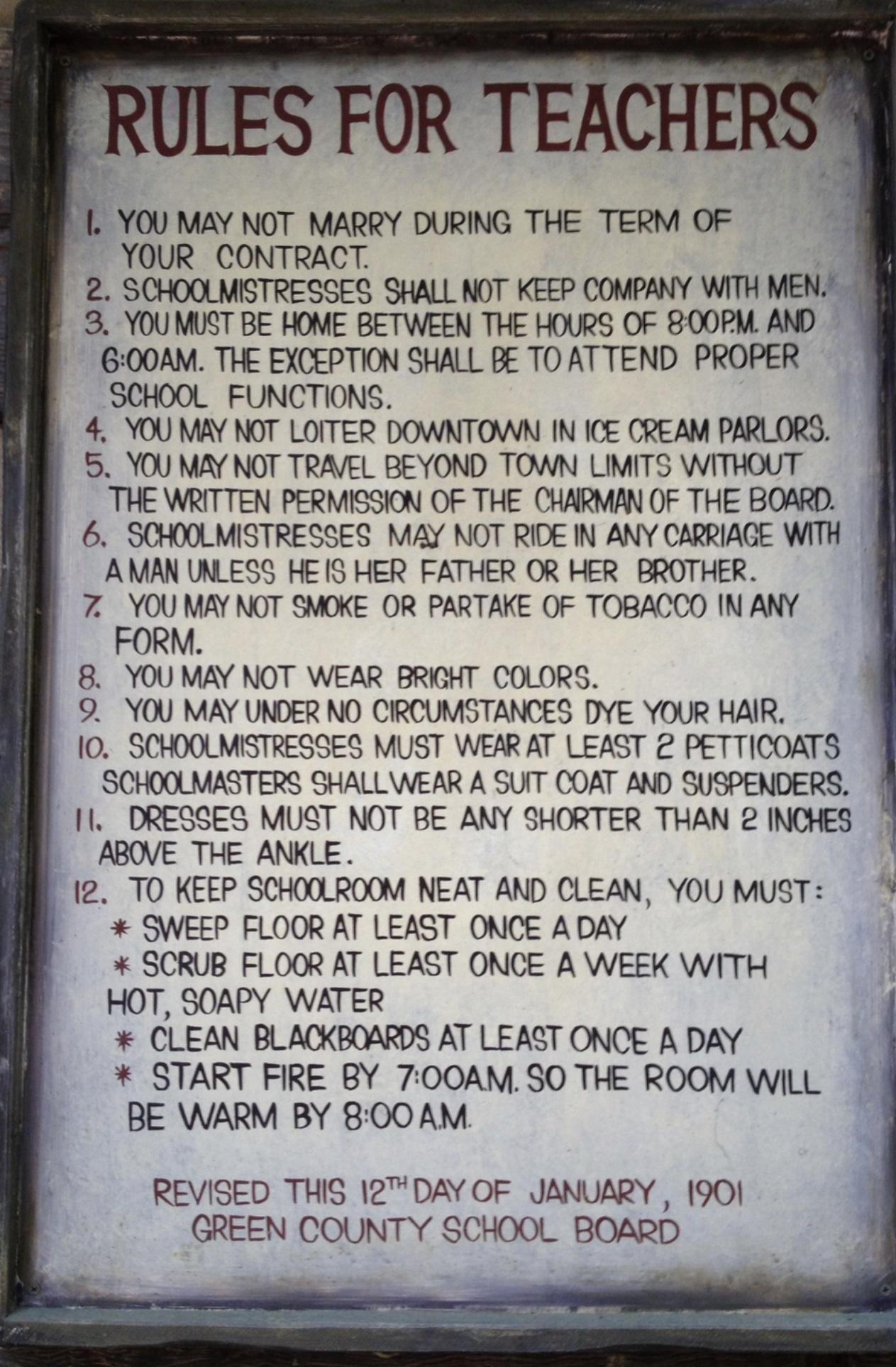
For 17 years, from 2001 to 2018, I created, developed and taught an original course called “Mathematical Ideas for Artists” at the California College of the Arts in San Francisco and Oakland, California.
My intent for the course was to introduce young, creative art students to the similarly recurring patterns and proportions found throughout nature and which were intentionally applied to worldwide arts, crafts and architecture in great and small creations since the dawn of civilization.
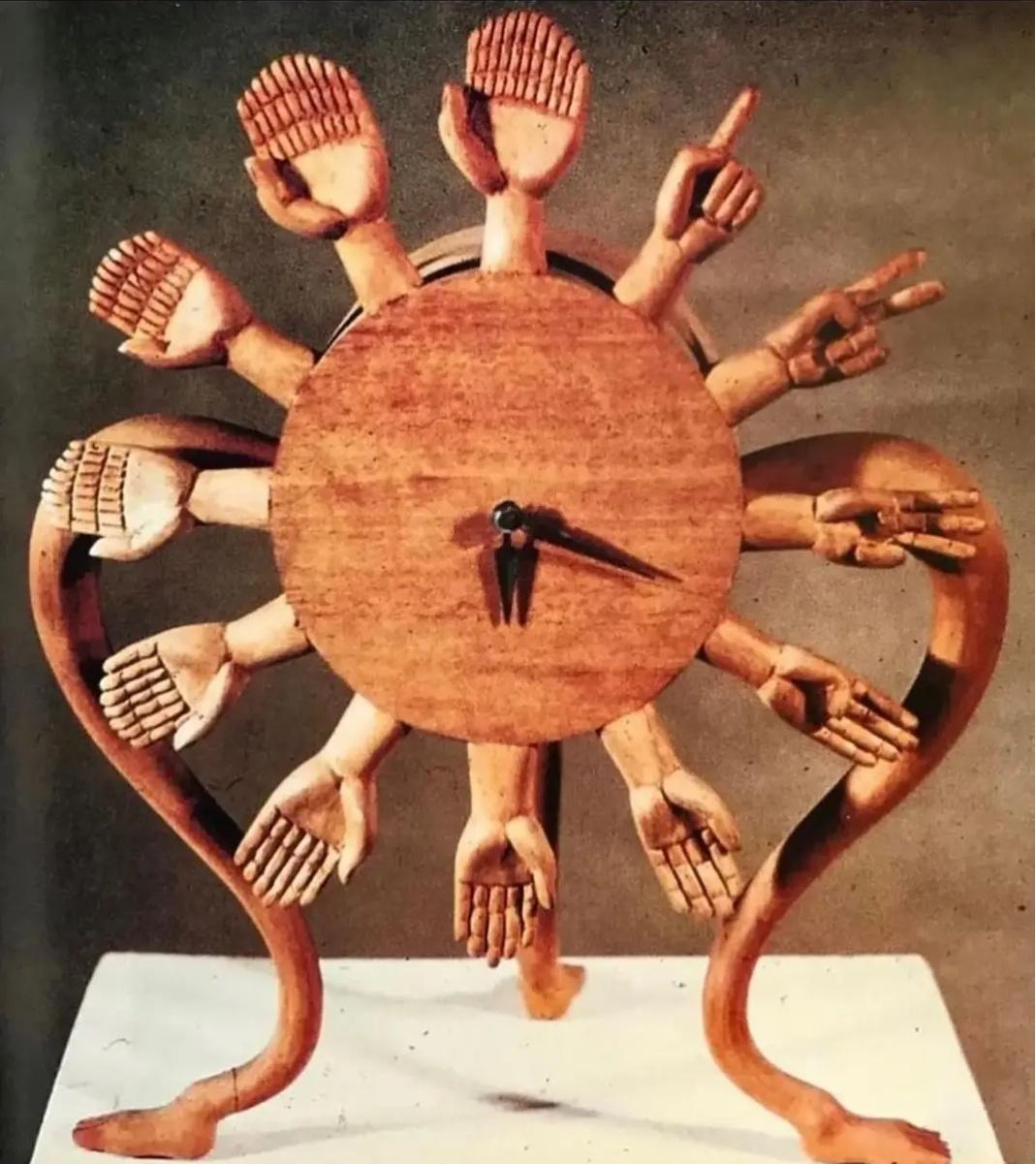
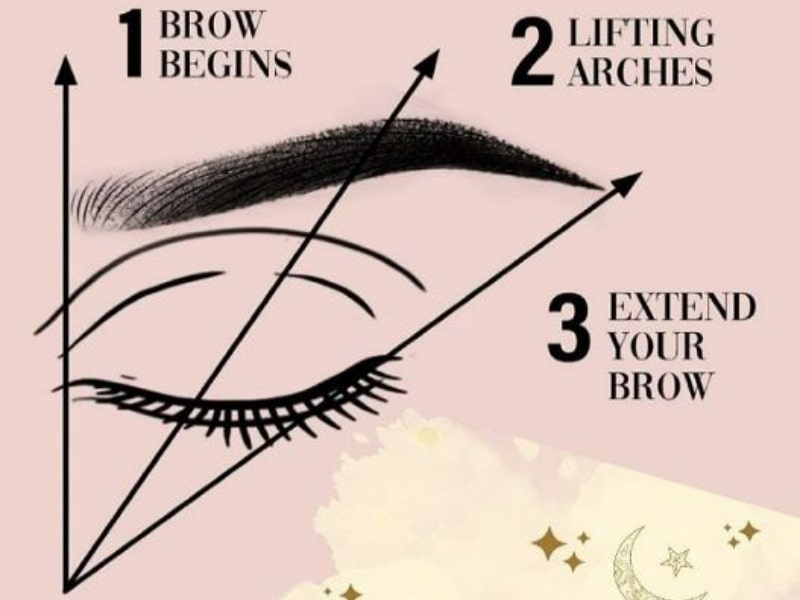
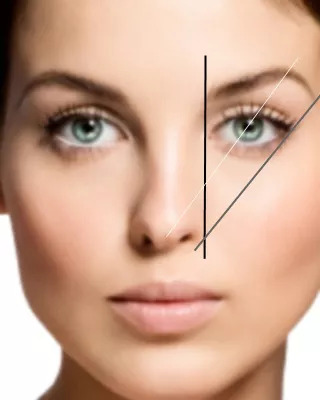
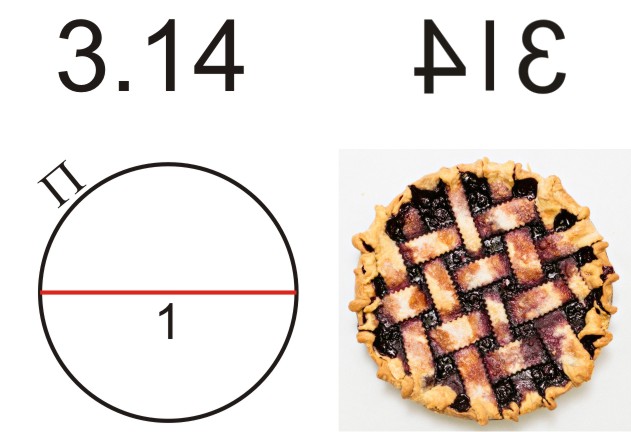
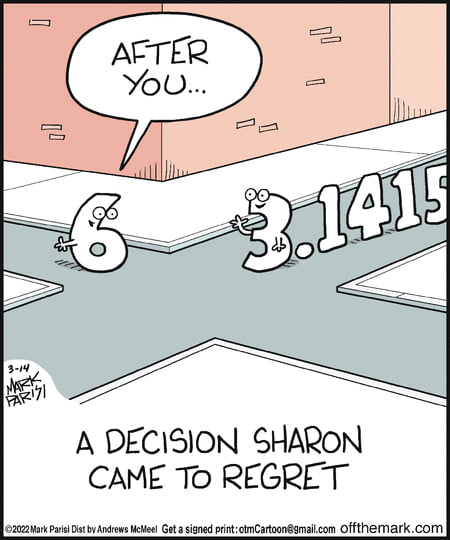

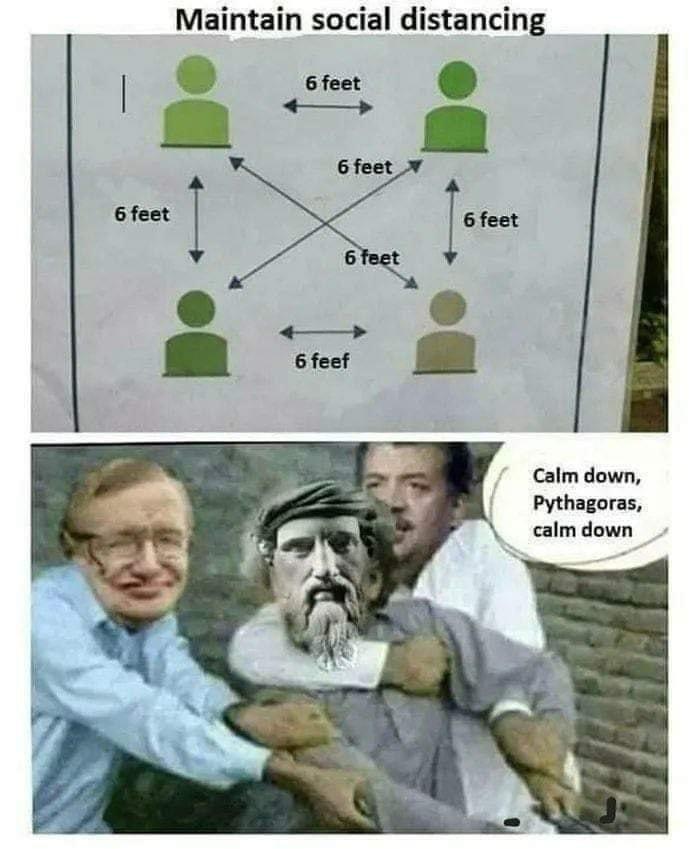
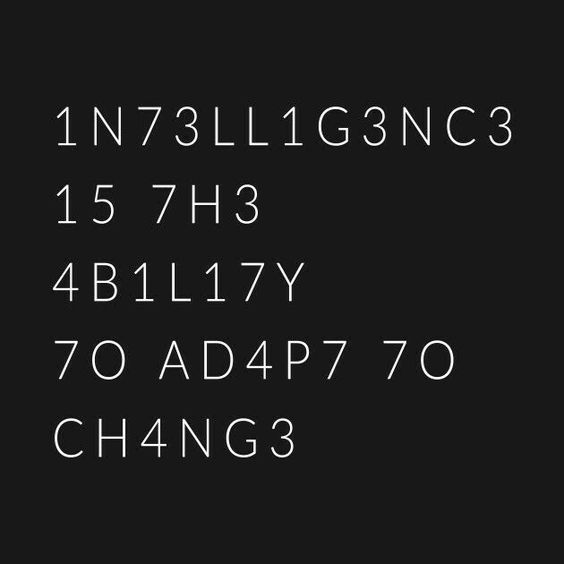
Name each angle:
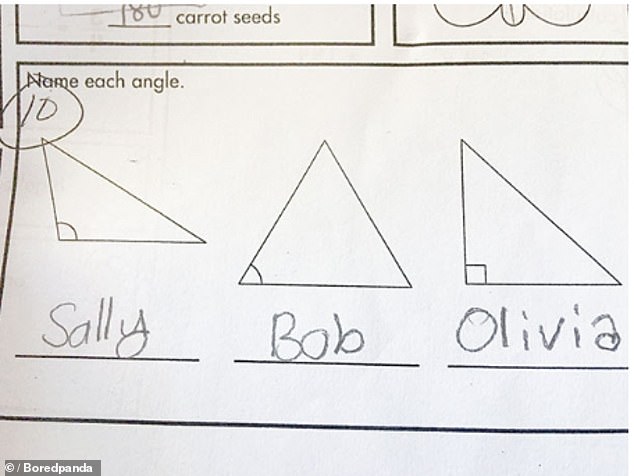
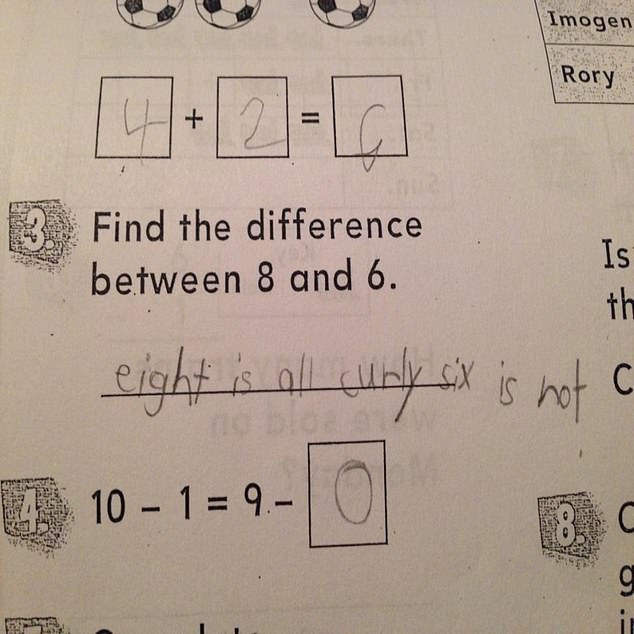
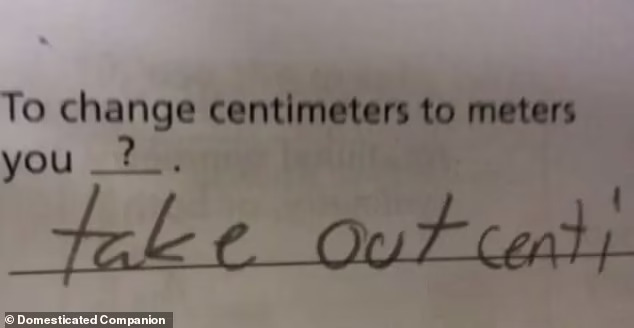
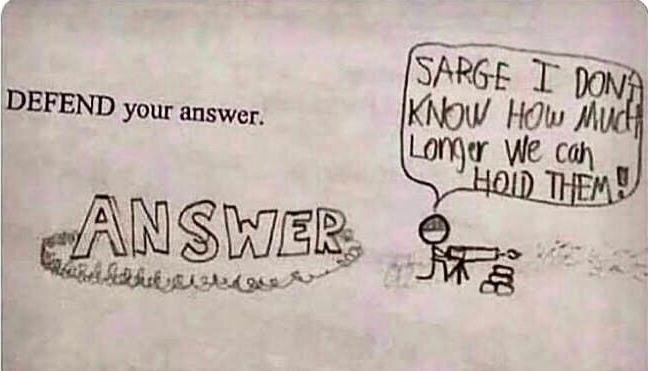

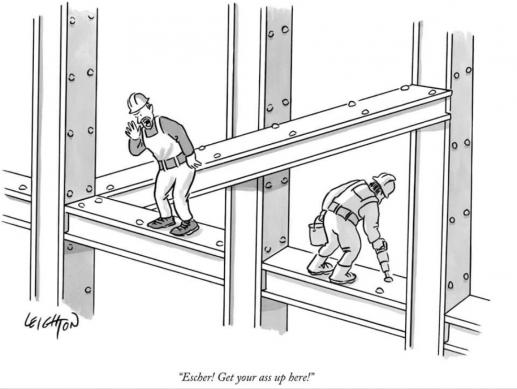
Be careful never to divide by zero!
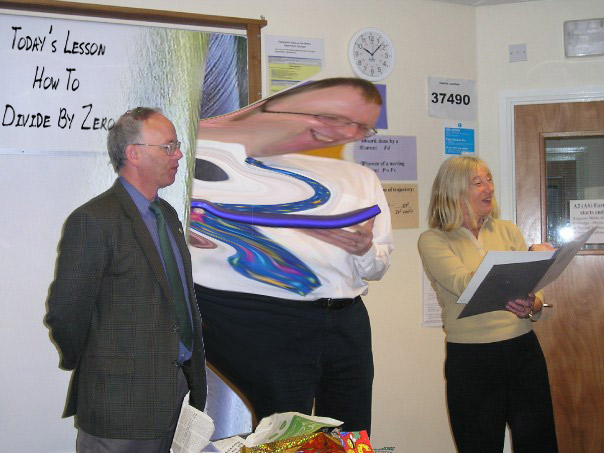

Don't ever mention the number 288.
It’s two gross!
What did 0 say to 8?
Nice belt!
What did 8 say to B?
Nice posture!
I, for one, like Roman Numerals.
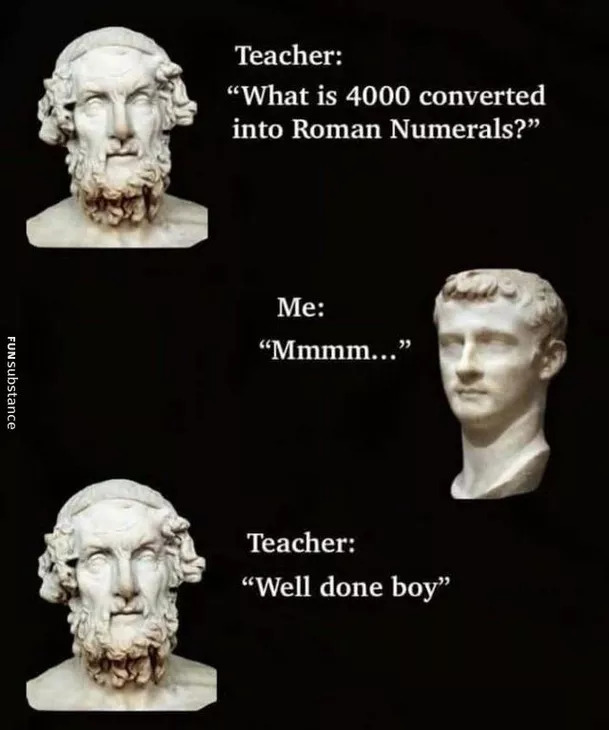
How many times can you subtract 10 from 100?
Once. The next time you would be subtracting 10 from 90.
Happy Birthday!
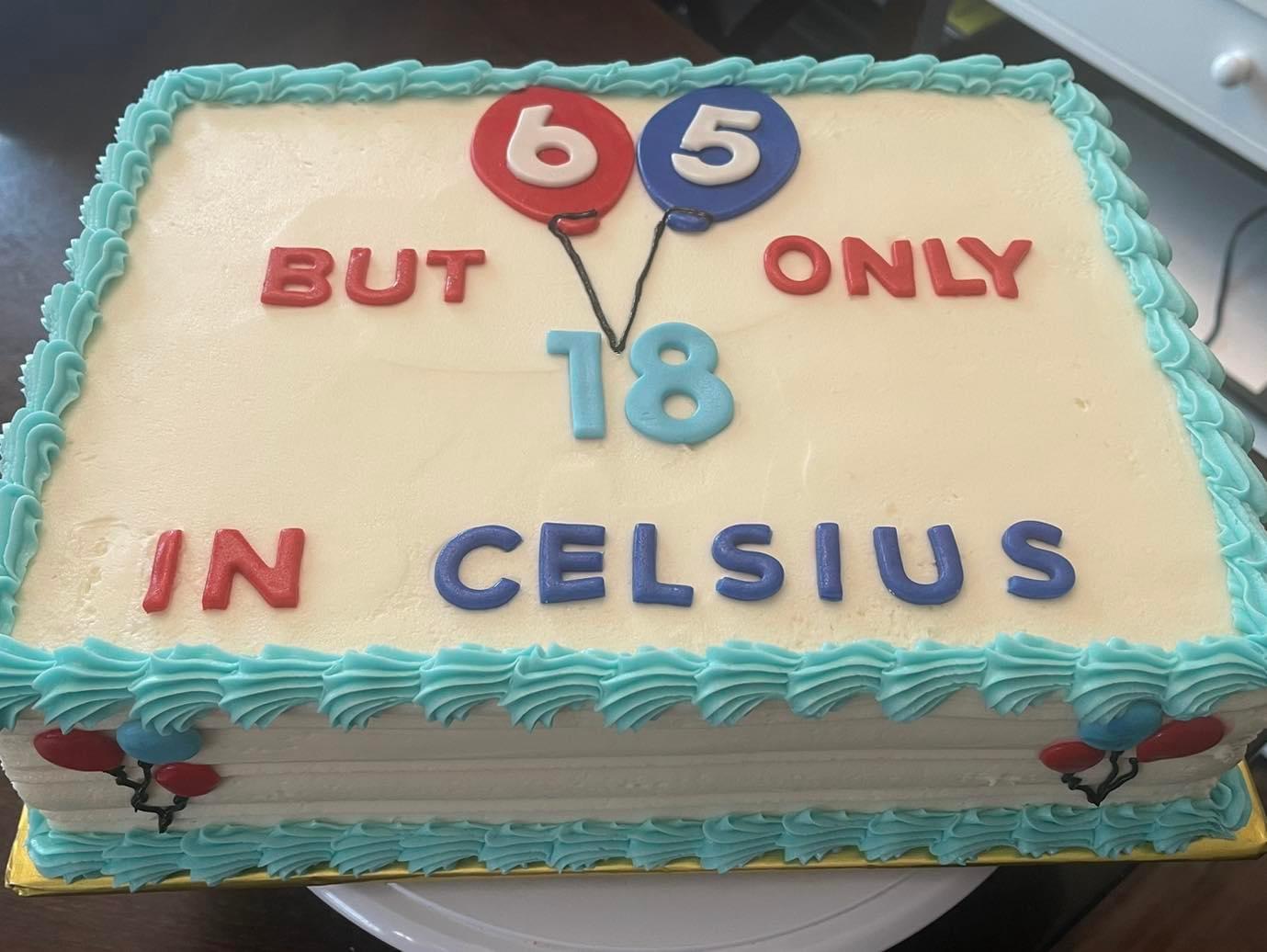
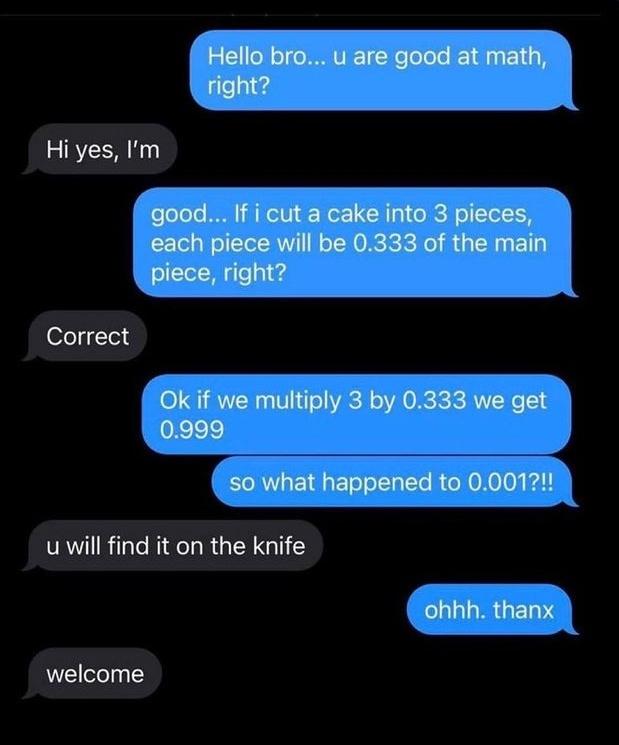
Who won the argument between 19 and 20?
21
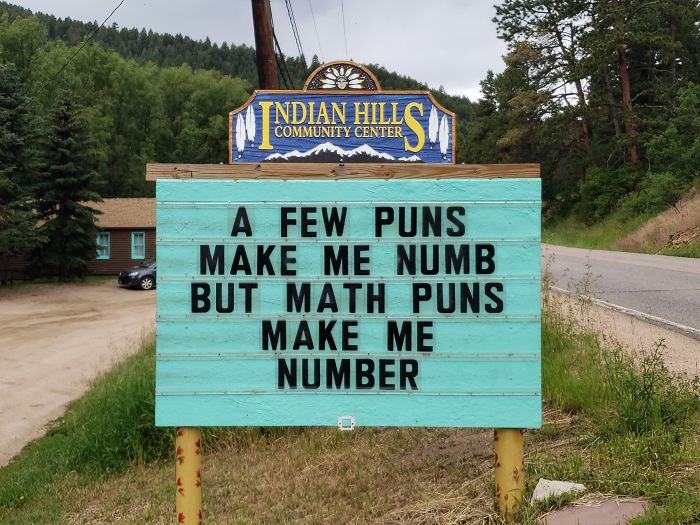
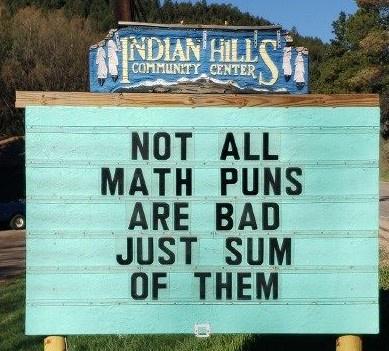

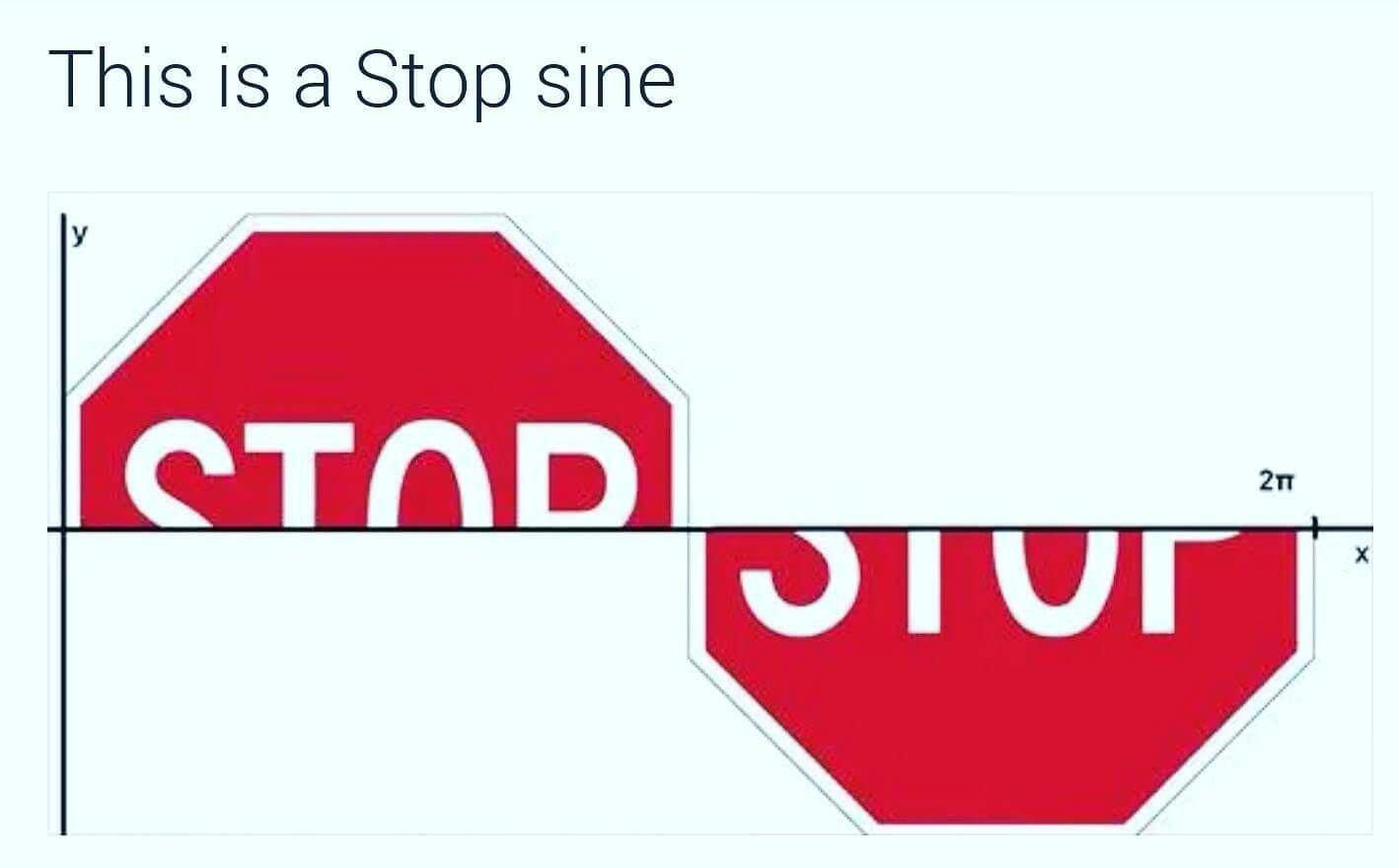

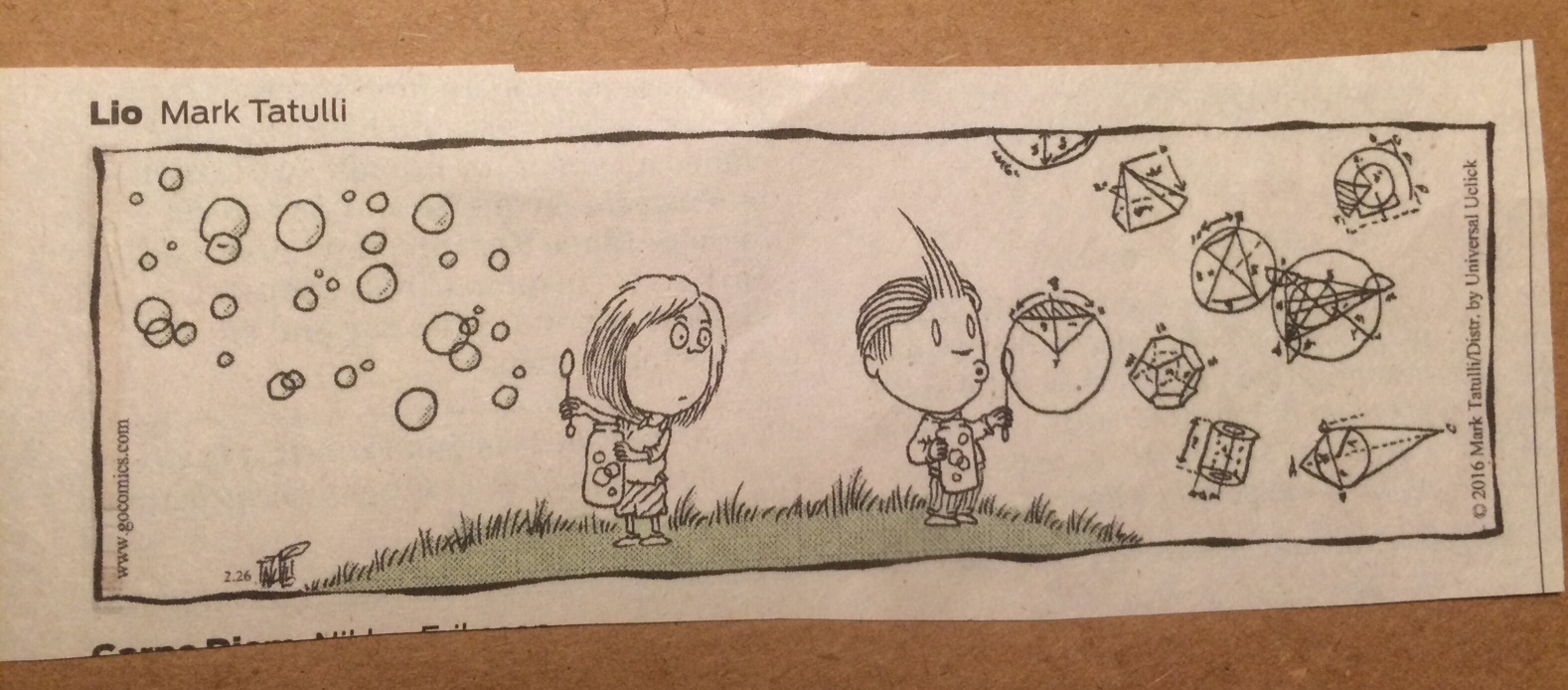
I skipped third grade.
Really? How did you do that?
I went directly from fourth to second.
Question: How many seconds are in a year?
Answer: Twelve
January 2nd, February 2nd, March 2nd …
How many milliseconds are in a day?
Obviously, 1000 milliseconds/second x 60 seconds/minute x 60 minutes/hour x 24 hours/day
= 86,400,000
or, more neatly
= 55 x 44 x 33 x 22 x 11
A local example of cosmic harmony
The Moon’s Synodic (Lunation) Period is the time between two full moons as seen from Earth (29.53059028 days),
and its Rotation Period is the time it takes to actually turn once upon its axis (27.3215835 days).
When their product is divided by their difference,
we see the precise number of solar days in one Earth year:
(Lunation x Rotation) / (Lunation - Rotation) = 365.2421964 days
365, the rounded number of days in one Earth year, is itself an interesting number:
365 = 10² + 11² + 12² = 13² + 14²
2025 is a very interesting number!
If you split the number 2025 into (20+25) and square it, it equals 2025.
That is, (20+25) x (20+25) = 2025
Or, 452 = 2025
2025 is the sum of the first 9 numbers cubed.
That is, 2025 = 13 + 23 + 33 + 43 + 53 + 63 + 73 + 83 + 93
The sum of entries (in red, below) of a 9 x 9 multiplication table is 2025:
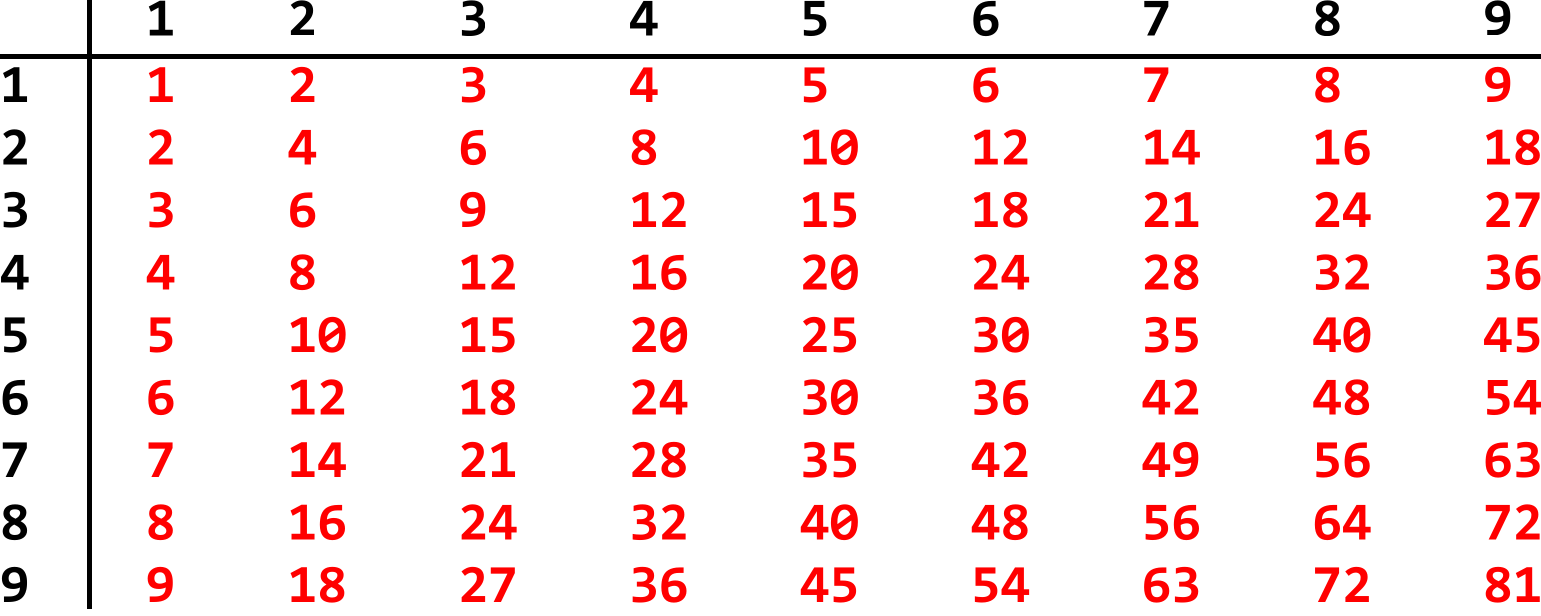
See https://www.numbersaplenty.com/2025 for more!
2024 is a "Leap Year"
(366 calendar days -- Happy Birthday to February 29 people!)
2024 = 2 x 2 x 2 x 11 x 23
Or, in fewer terms: 2024 = (45 x 45) - 1
2024 has 16 divisors: 1, 2, 4, 8, 11, 22, 23, 44, 46, 88, 92, 184, 253, 506, 1012, 2024
The sum of the divisors of 2024 = 4320
This number 4320 (= 12 x 360) is canonical, so its fractions and multiples show up in a wide range of classic measures:
432 grains = 1 ounce
432 vibrations per second = the Perfect Fifth of Pythagorean tuning of the musical scale
432,000 miles = the sun's radius
432,000 syllables comprise the Indian sacred mythological poem Rg Veda ("Praise Knowledge")
... and quite a bit more ...
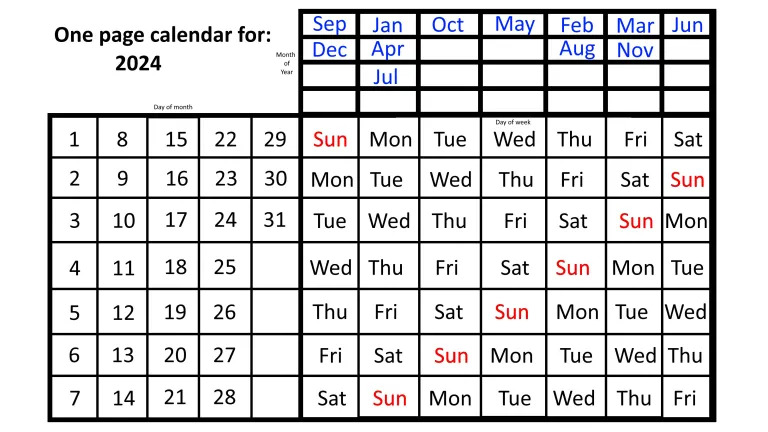
2020 is a "Leap Year" (366 calendar days)
2020 = 2x2x5x101
2020 has 12 divisors: 1 2 4 5 10 20 101 202 404 505 1010 2020
(There's a lot of doubling among those divisors!)
2,020 seconds= 33 minutes, 40 seconds
And don't forget 20/20 vision!
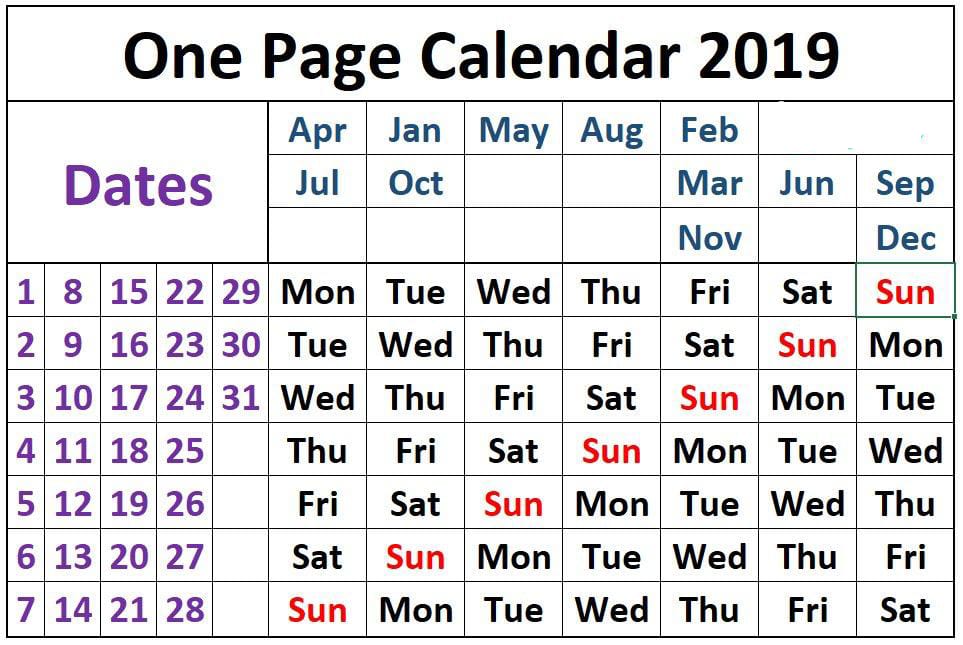


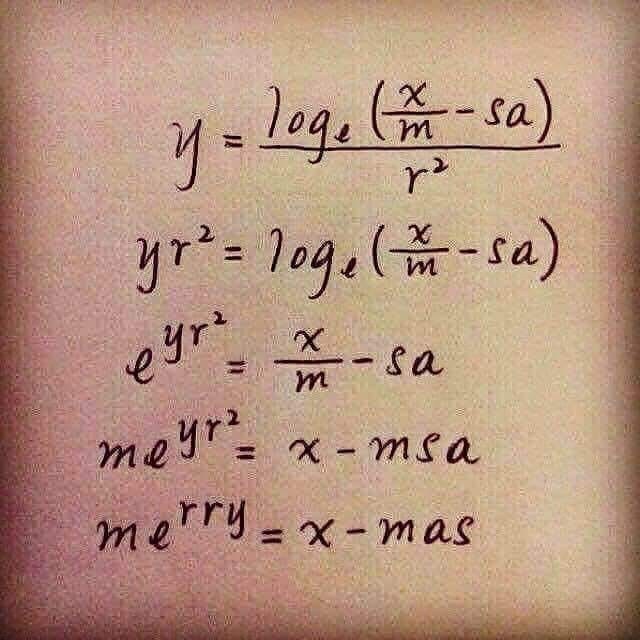
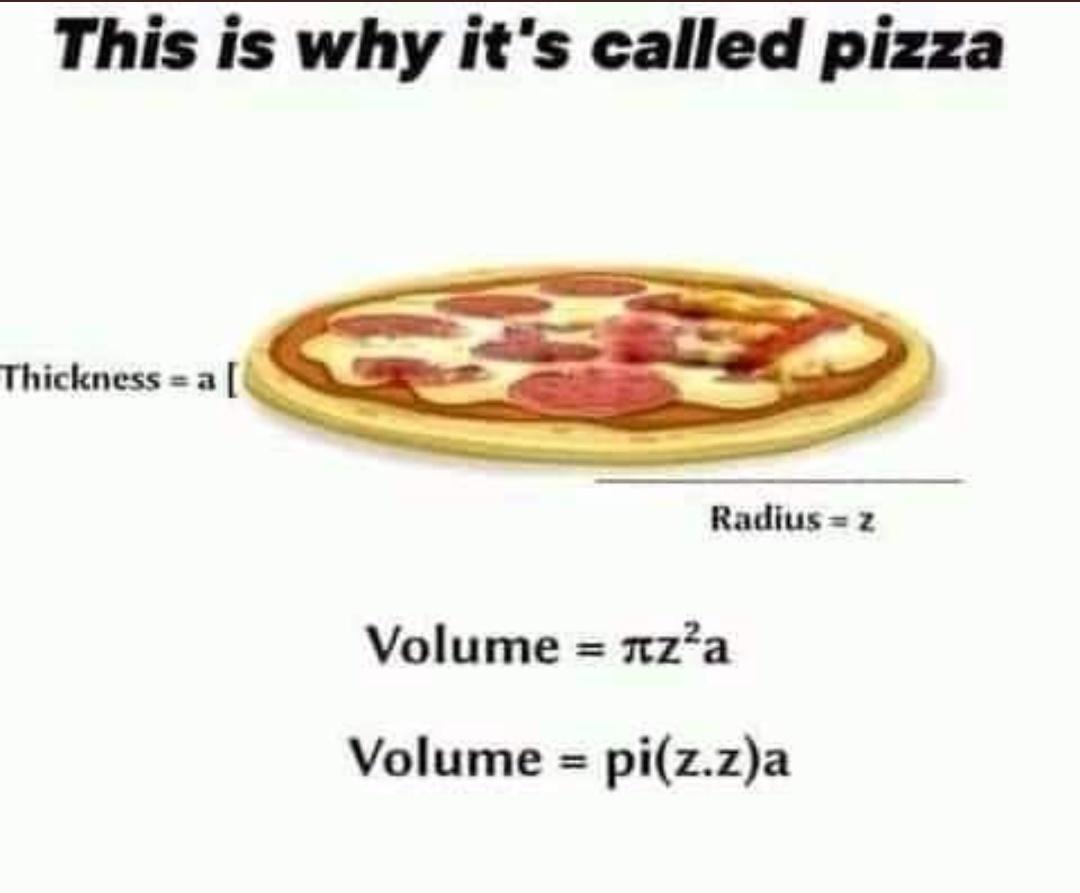
What is half of

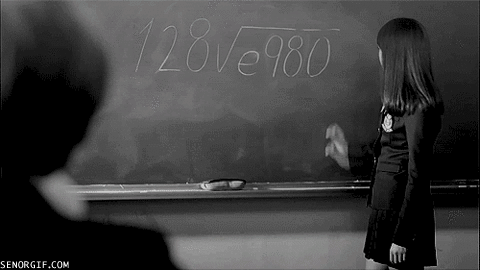
Does 5x5=25 or 14? Are you sure?
Ma and Pa Kettle mix mathematical principles in this amusing old movie clip on YouTube.
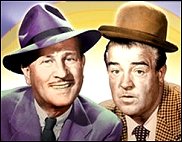
Can 7x13=28? It doesn't seem likely, but perhaps you'll be convinced!
Abbott and Costello also mix mathematical principles in this amusing old movie clip and also this one on YouTube.
The Great Math Mystery
Is math invented by humans, or is it the language of the universe?
(My opinion: mathematics comes with the universe but humans invent the numerals and symbols to describe it.)
Watch this NOVA TV program about the appearance of math in the cosmos.
When asked, most people get this question only partly right:
What do the 50 stars on the flag of the United States represent?
Most people will say that the 50 stars stand for the 50 states, but that's not completely correct!
The quantity 50 does indeed represent the number of states, but the 5-pointed star itself is a symbol of life and humanity:
thus, the 50 stars represent the People of the 50 states, not the states themselves.
They're there to remind us that the ultimate power in the United States resides in the hands of free people who consent to be governed, not in any government that the people have elected to protect and serve them.
Fifty stars represent free citizens ruling themselves, having inalienable rights , not subjects of any government deciding which rights to grant or deny them.
It's important to remember this, and that the blue field should never be replaced with any other symbol than 5-pointed stars, representing We The People.
(Although dozens of countries' flags display the five-pointed star, a few employ it this way as an archetypal symbol of humanity and others interpret it culturally in different ways.)
What do U.S. paper sizes have in common with the Earth and Moon?


A Rare Rectangular Galaxy Was Recently Discovered!
What Rectangle Is It?
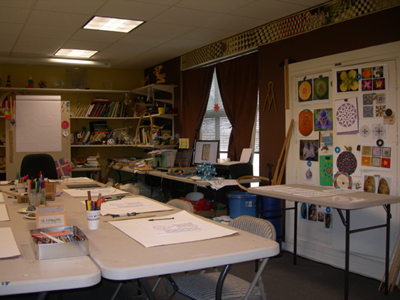
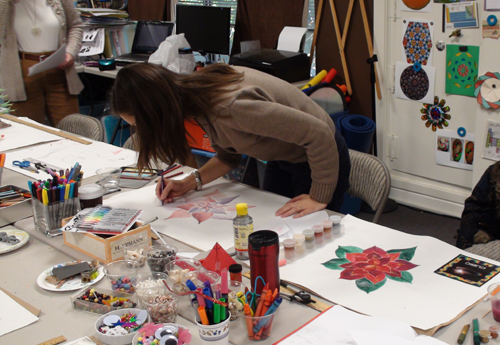
But now, after 3 great years, the Constructing The Universe Classroom has closed,
having appeared for a while and then faded back into the mist of time, a Brigadoon of mathematical education.
With Immense Thanks! to all my students, adults and children (and their dedicated parents)
and the many friends and supporters of the Classroom and this positive approach to mathematics education.
What next? The contents of the classroom are going into storage, like a seed pod awaiting the proper conditions for another bursting forth.
In the meantime I'll be working on making available the educational materials I've developed here for others to use
for teaching and learning the many topics this classroom gave me the time and enthusiastic students to create.
November 2012
"How I Came to Write A Beginner's Guide to Constructing the Universe"
I wrote this autobiographical essay and answered questions as Author of the Month (December 2013) at the Graham Hancock website.
Follow my journey of learning through its links.
To read the essay, click on the book cover...
On pages 159-160 in A Beginner's Guide to Constructing the Universe I described the reasons, as I saw them,
that birds often fly in V-formation:
Now, over 20 years later, scientists have done experiments to prove it:
"There is a geometry of art as there is a geometry of life,
and, as the Greeks had guessed,
they happen to be the same."
-- Matila Ghyka
"We have to admire in humility the beautiful harmony of the structure of this world — as far as we can grasp it..."
-- Albert Einstein
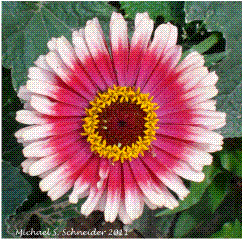
"One of [the brain's] functions is to make the miraculous seem ordinary, and turn the unusual into the usual.
Otherwise, human beings, forced with the daily wondrousness of everything would go around wearing a stupid grin, saying "WOW" a lot.
Part of the brain exists to stop this happening. It is very efficient and can make people experience boredom in the middle of marvels."
-- Sir Terry Pratchett, English author
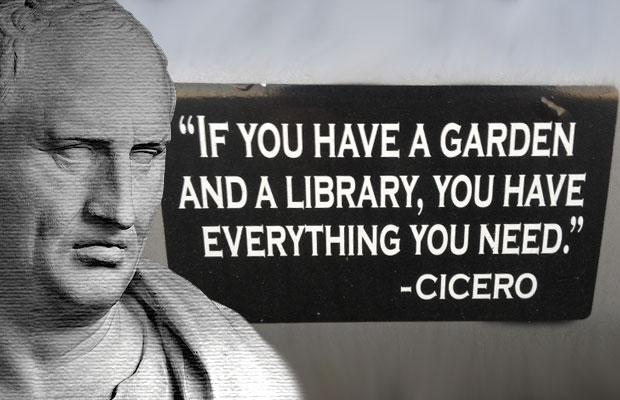
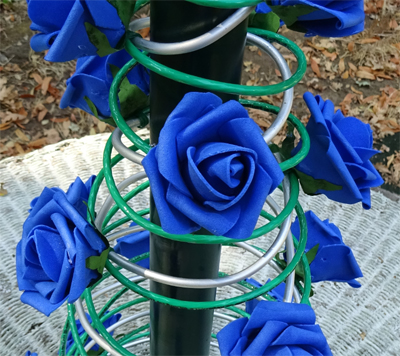
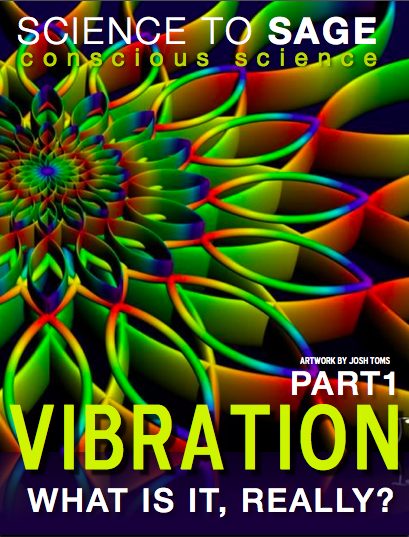
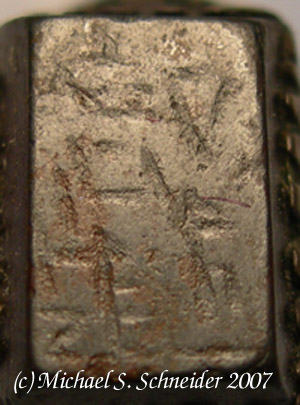
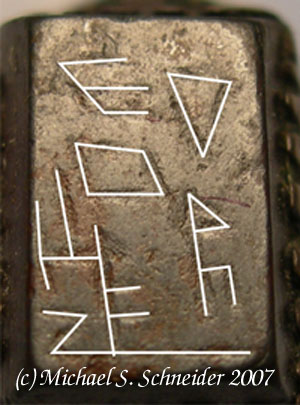 Right: my best guess as to the shapes
Right: my best guess as to the shapes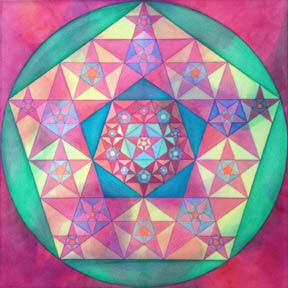
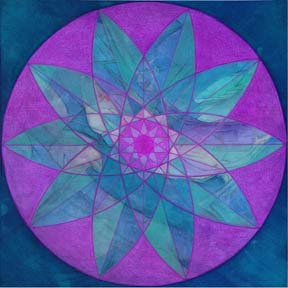
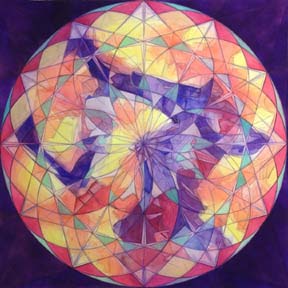
Golden Ratio Geometry in Egyptian Art
In modern orthodox Egyptology, recognizing the consistent, intentional application of the Golden Ratio
in the designs of their arts, crafts and architecture is controversial, even denied,
but to me there is no doubt about it!
It is consistent with their philosophy of Ma'a, of maintaining eternal Truth, Justice, Uprightness and Right Order
in symbolic and mythological alignment with the eternal Truths found in mathematics, in simple numbers, shapes and their proportions.
This video is a visual presentation of my findings of apparent applications of Golden Rectangles
in the geometric composition and symbolism of ancient Egyptian arts, crafts and architecture.
It was presented at the CPAK conference on Saturday October 10th, 2009,
at the National Academy of Sciences' Beckman Center at UC Irvine, California.
If you're interested in Egyptian art and/or the Golden Ratio then you might enjoy its interesting examples.

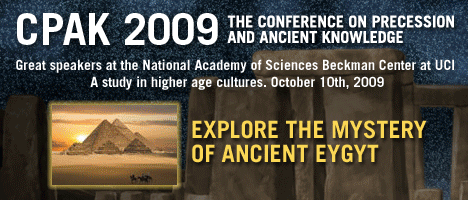
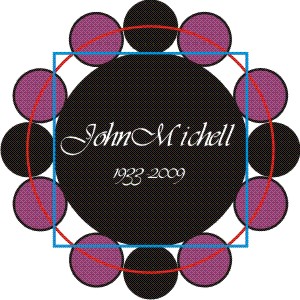
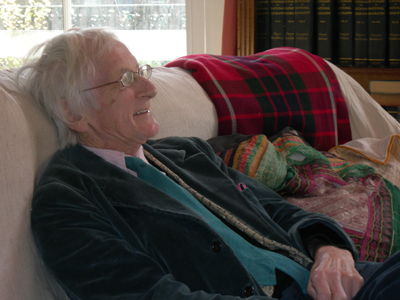
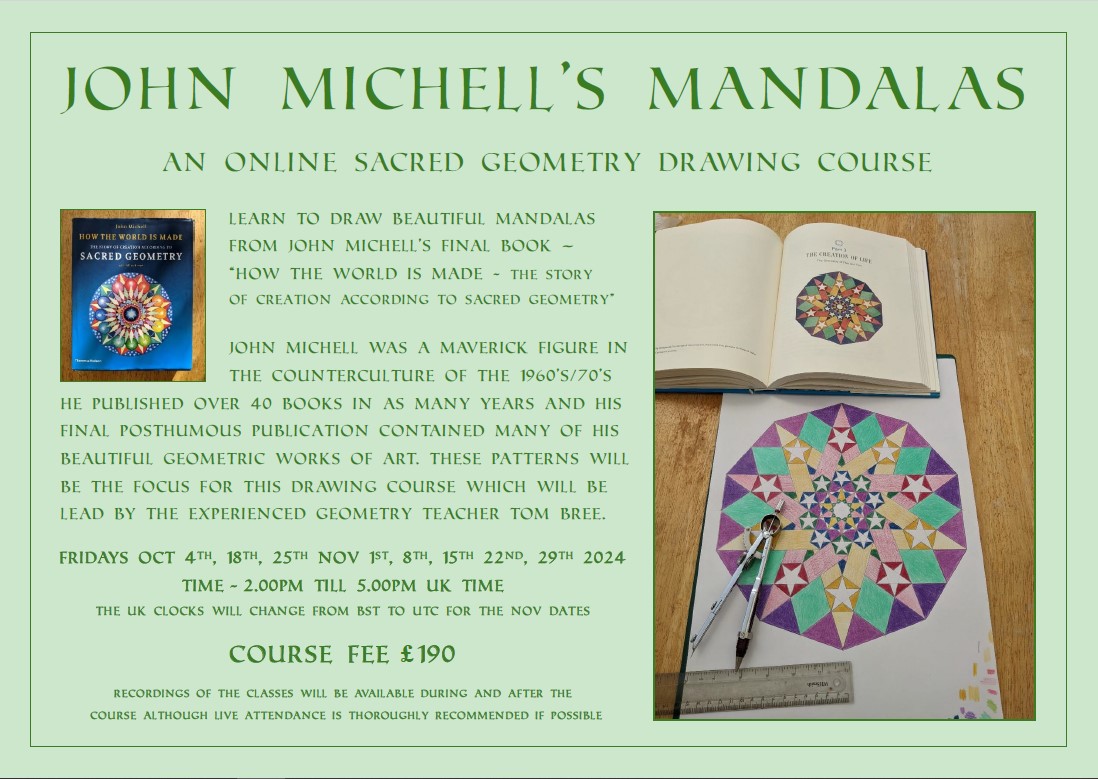
Do you live in the UK? Lucky you!
You can easily attend classes at the extraordinary
Sacred Art of Geometry:
"Short courses and symposia in the practice and philosophy of Sacred Geometry and the arts of the Quadrivium."
Can you get to Spain?
You'll be pleased to visit the Flores del Camino Retreat Centre on the Camino de Santiago
for Sacred Geometry, Art and Sacred Crafts Retreats and Workshops!
Highly recommended books written by friends...
The Cosmos In Stone
Sacred Geometry of a Master Mason
by Tom Bree
A marvelous book revealing the geometry of great architecture.
Rachel and I were both associated with the Cathedral of St. John the Divine in the late 1980's
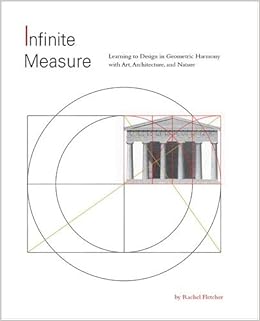
How the World Is Made: The Story of Creation according to Sacred Geometry by John Michell and Allan Brown
A beautifully done and important work. Contains many of John's watercolor paintings.
John wrote 40 books in so many years. Here are many of them.
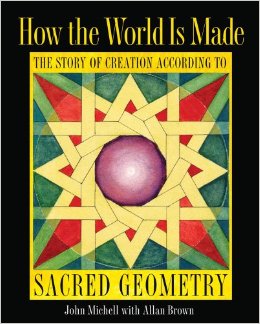
Michael and John in London
"Twelve-Tribe Nations: Sacred Number and the Golden Age" by Christine Rhone and John Michell
A YouTube lecture by Christine Rhone about Twelve-Tribe Nations here.
A Beginner’s Guide to Symbolic Geometry: Christine inverviews Michael in print, with great color illustrations.
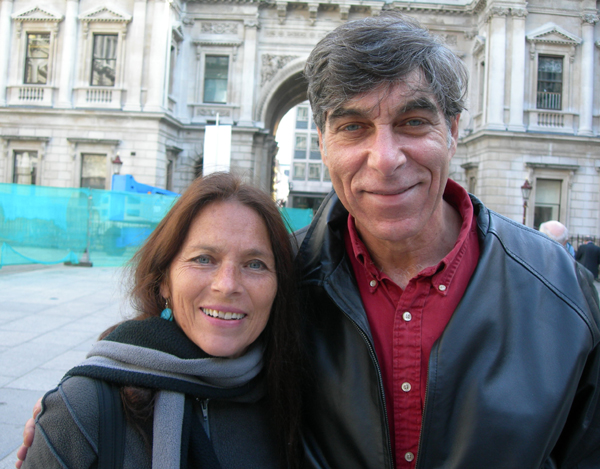 Christine and Michael, London 2009
Christine and Michael, London 2009
"All Done With Mirrors" and the "Ancient Metrology" series by John Neal
IMO, the most important books about metrology ever written.
John Neal and I in London 2019:
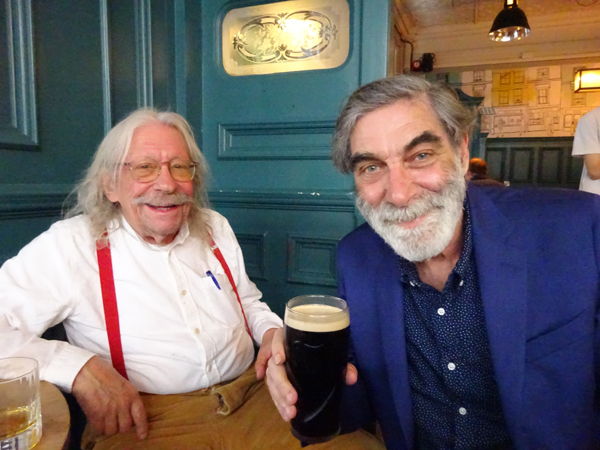
Anonymous -- Likely by John Michell
Free download
Beauty for Truth's Sake: On the Re-enchantment of Education by Stratford Caldecott
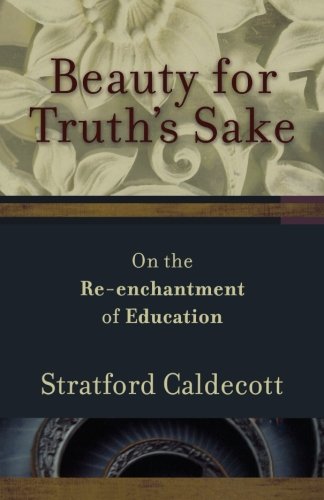
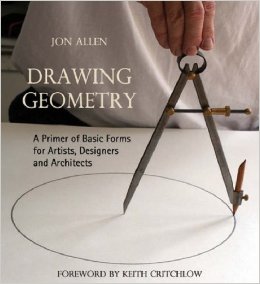
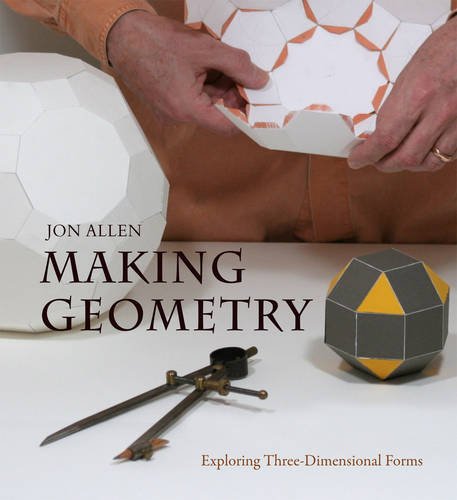
Adam Tetlow, Michael and Jon Allen
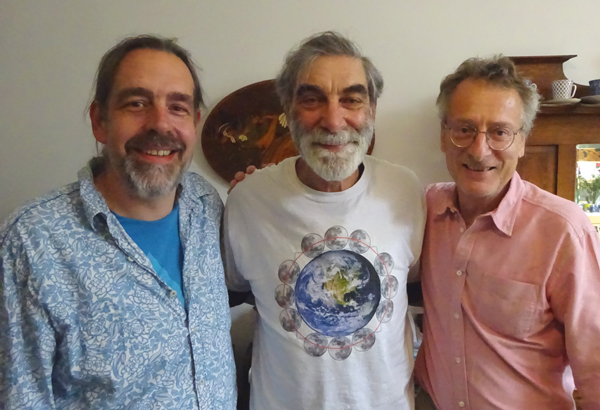
"The Diagram: Harmonic Geometry" and "Celtic Pattern: Visual Rhythms of the Ancient Mind" by Adam Tetlow
Michael, Adam Tetlow and a couple of Pharaohs at the British Museum
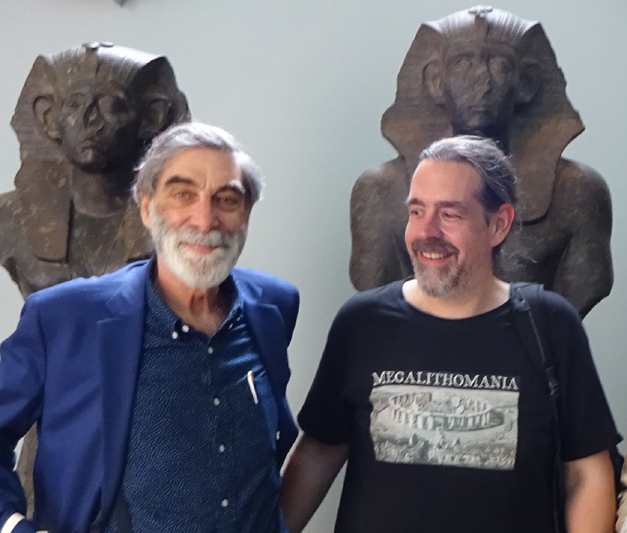
"A Little Book of Coincidence in the Solar System" by John Martineau
John Martineau is the publisher of the incredible Wooden Books. Take a look at their remarkable titles!
And please purchase these Wooden Books from woodenbooks.com
Here are Adam Tetlow, Michael and John Martineau in California 2024
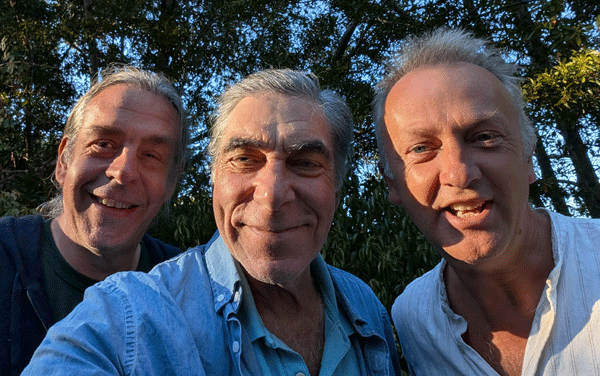
May we be guided by Truth
May we have Beauty revealed to us
& May it result in good.
Pythagorean invocation by Professor Keith Critchlow (1933-2020)
A very beautiful and informative book about the geometric wisdom seen in the designs of lovely flowers.
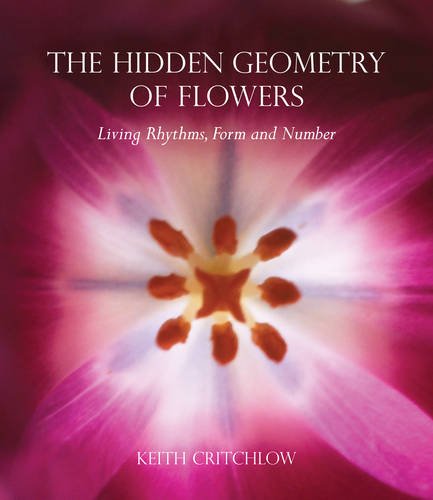
Glastonbury Kairos workshop 1999. Keith standing 2nd from left, John Michell sitting centre, Michael standing far right
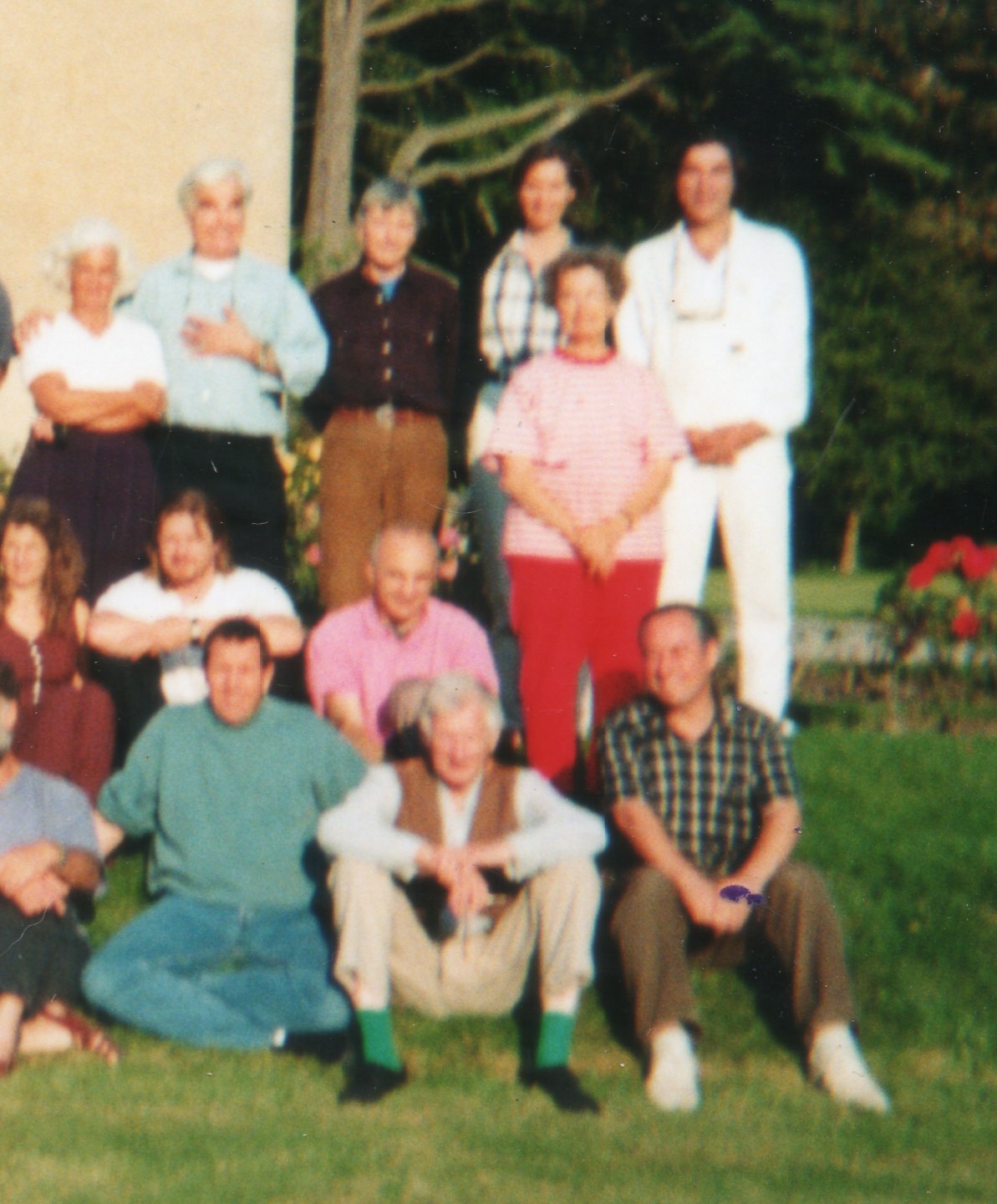
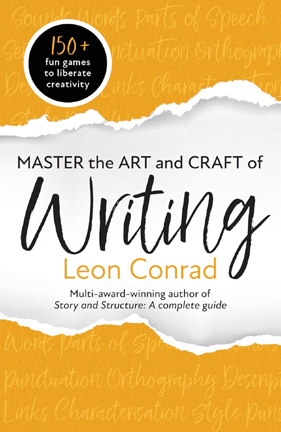
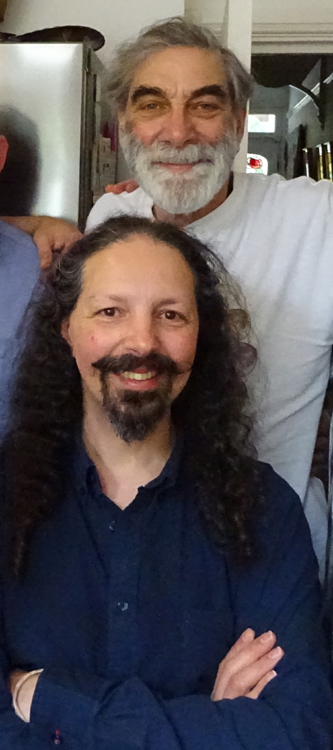 Michael and Leon 2019 in Wimbledon
Michael and Leon 2019 in Wimbledon
Sacred Geometry Design Sourcebook by Bruce Rawles
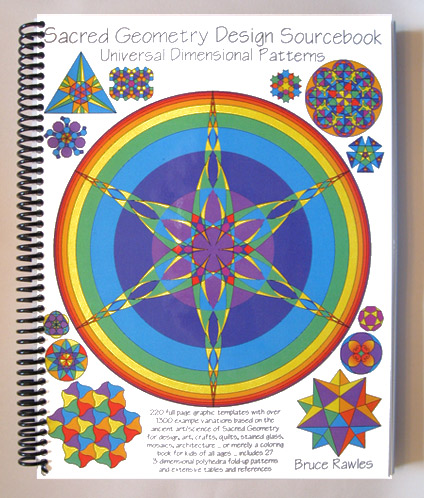
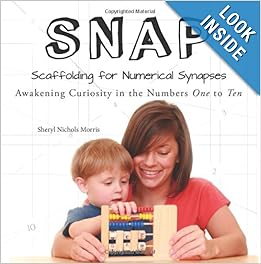
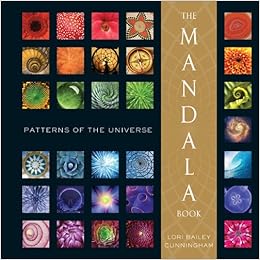
Math Stories by Howard Schrager



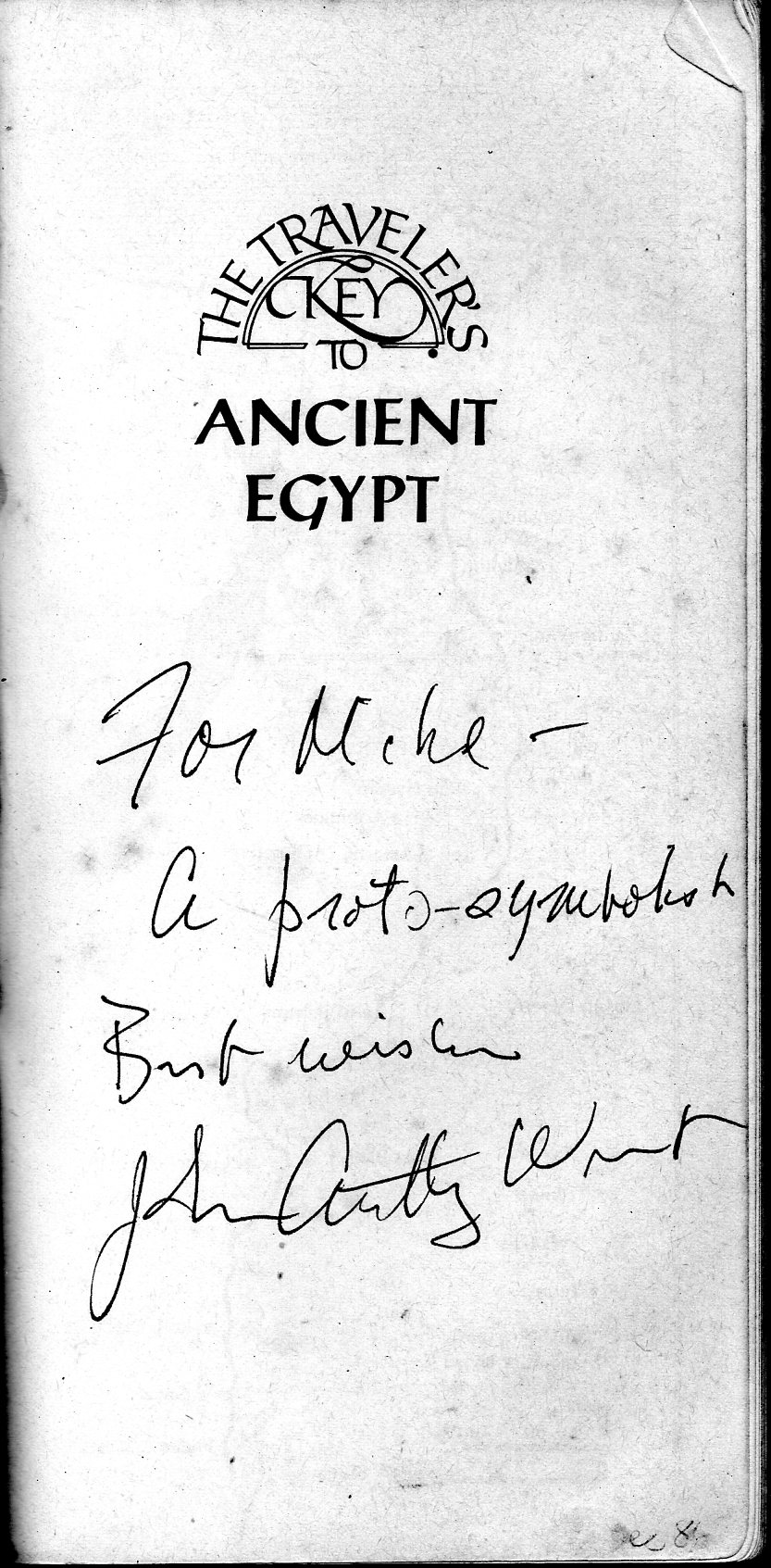
"Study of the Osireion at Abydos" by Charles Herzer
The most comprehensive study of the Egyptian subterranean structure known as the Osireion.
There are five volumes: three of text and two of plates! A synopsis can be found here.

Michael and Charlie in San Francisco 2010
Fact Magazine, Edited by Ralph Ginzburg
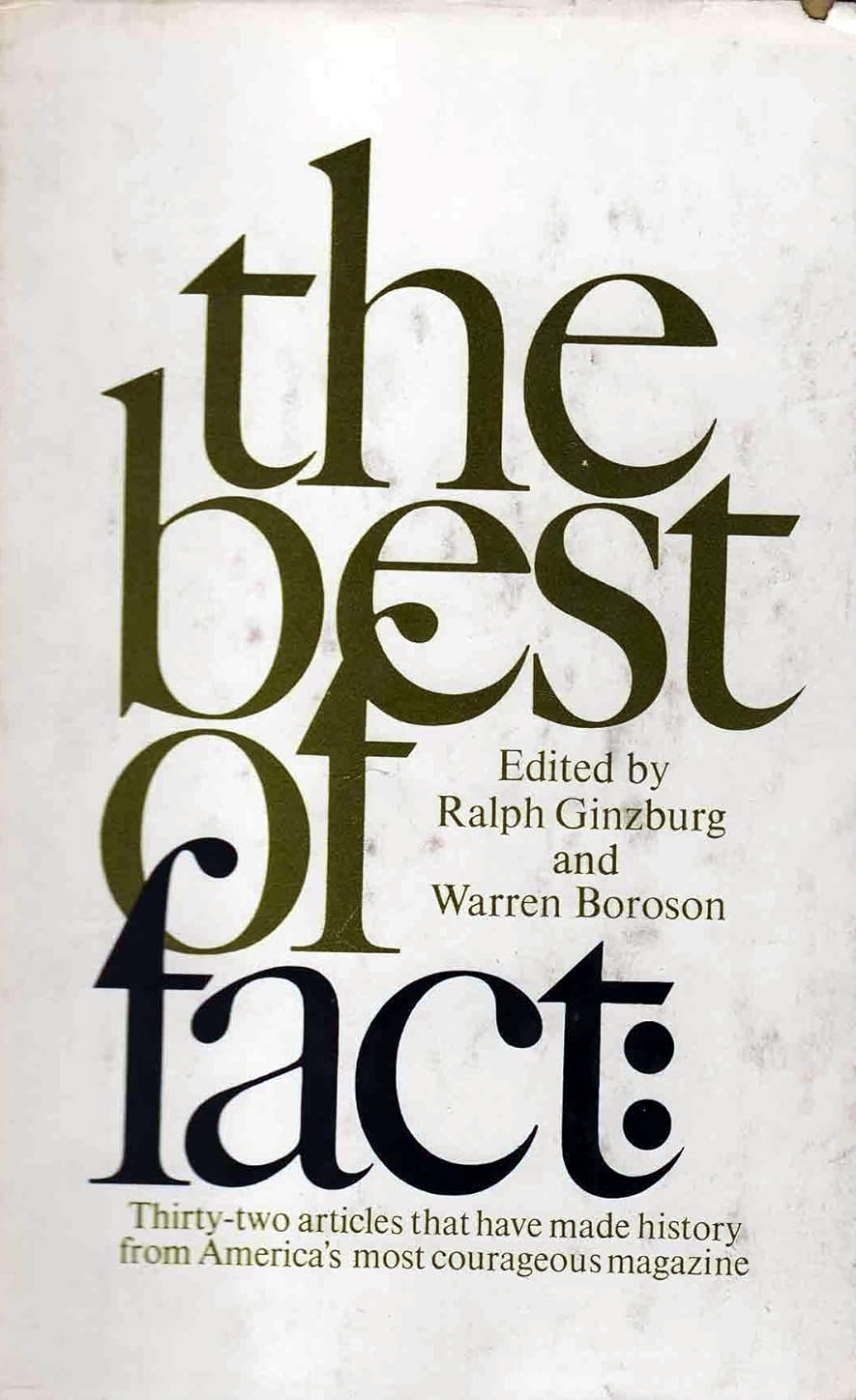
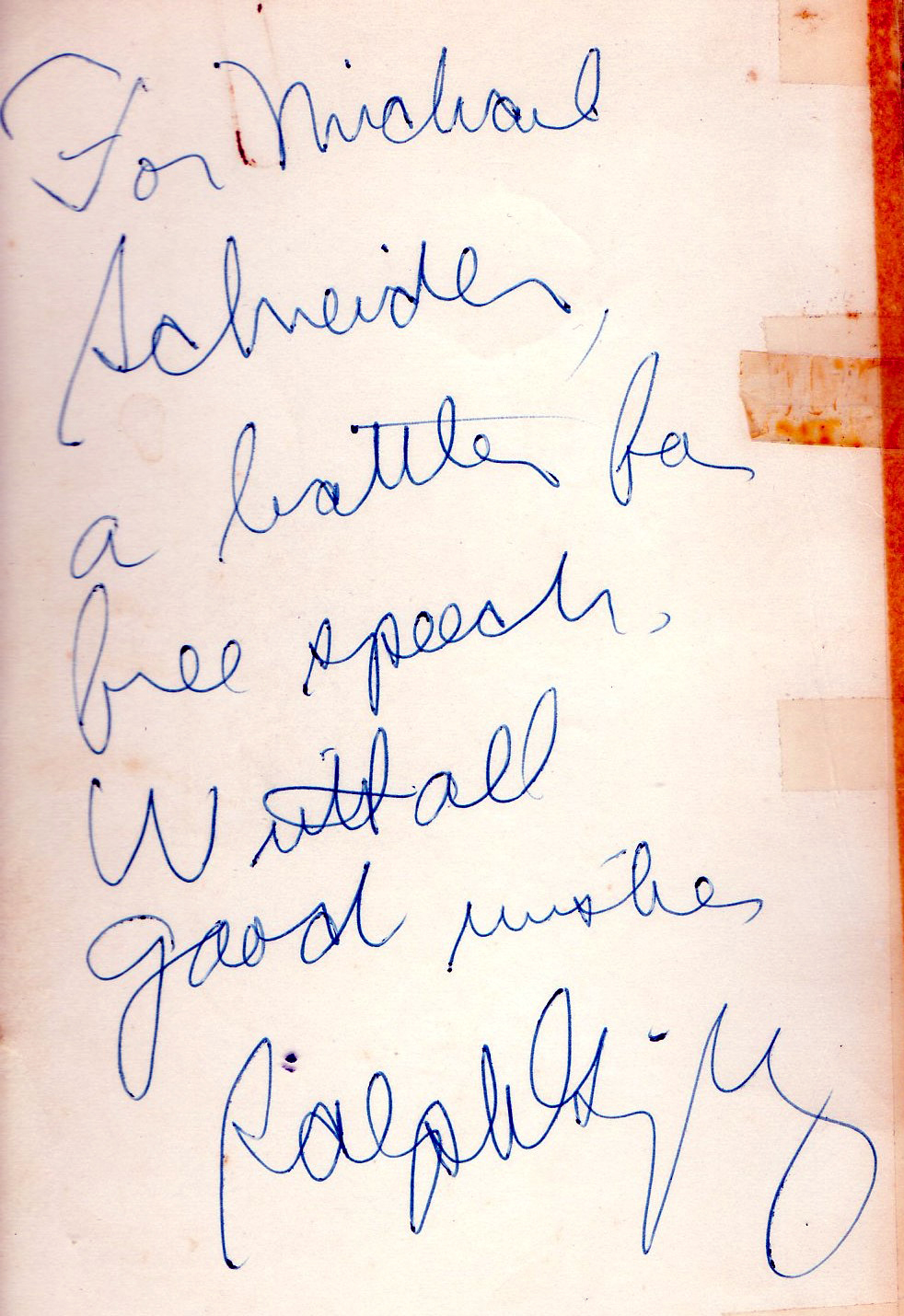 December 1967
December 1967
The Book of Symbols: Reflections on Archetypal Images
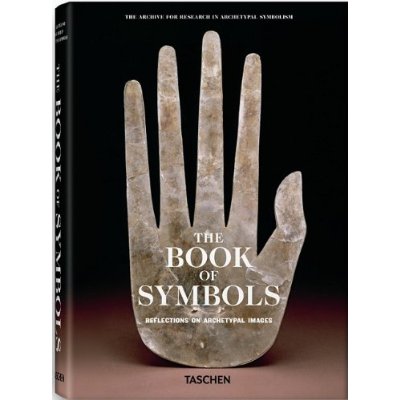

Count Like An Egyptian by David Reimer
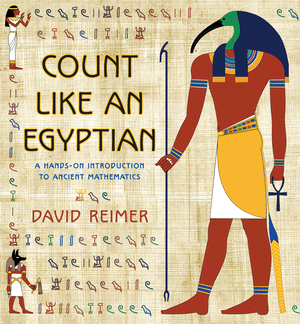
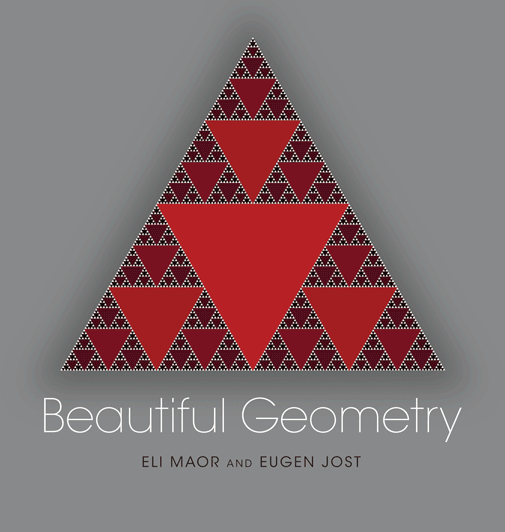
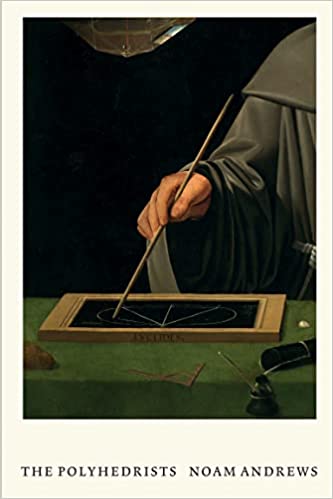
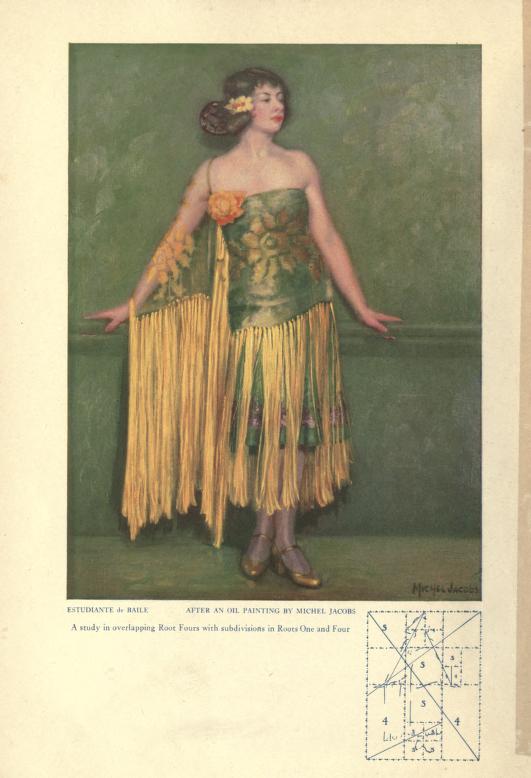
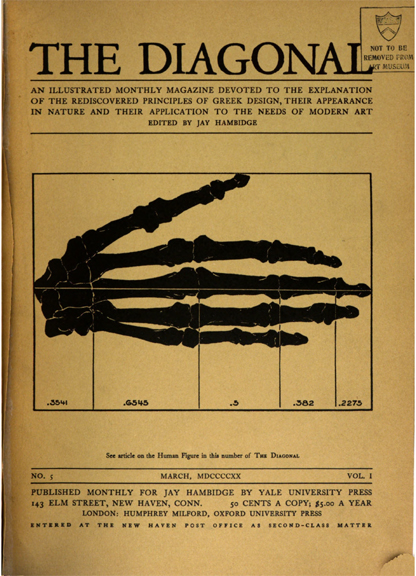
A large public mandala in Ireland influenced by my books.
They're each made of natural materials and objects.

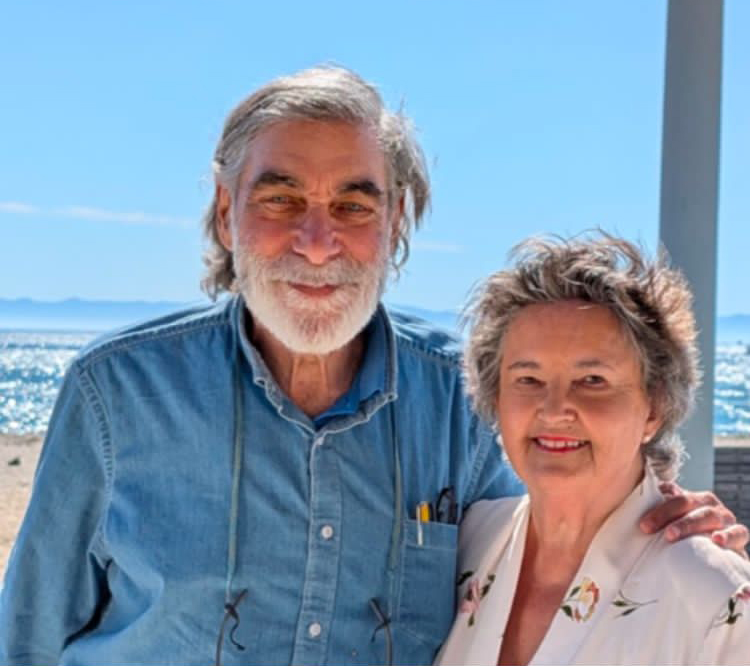
About Michael ... Photo by Karen Koshgarian
Michael S. Schneider has been an educator for nearly five decades (since 1974). He delights in exploring the intersections of nature, science, mathematics and art.
Michael has a Bachelor of Science degree in Mathematics from the Polytechnic Institute of Brooklyn, (now The Polytechnic Institute of NYU) and a Master's Degree in Mathematics and Science Education from the University of Florida (Gainesville). He taught youngsters for twelve years in public and private schools at the Middle School and Elementary school levels. In 1977, Michael was a Fulbright-Hayes Scholar in India studying ancient mathematics and sciences. He has been a computer consultant and trainer at IBM, Nickelodeon, MTV, NYTimes, Revlon and many other corporations in New York City. For a year he was the computer instructor at the United Nations. He has worked for the New York Academy of Sciences, and wrote articles, posters and teachers' editions for various Scholastic magazines including Science World, SuperScience, DynaMath, and Teaching and Computers magazines. Michael was the creator and writer of the weekly "Mother Nature" segment at WNYC-FM radio on the popular live broadcast "Kids America" program (1986-87). He's also held workshops for educators at The Metropolitan Museum of Art in New York through their Education Department including "Science in the Art Museum", "The Mathematics of Islamic Art" and "Showing Children Harmony". In 1993 Michael worked with master stonecarver Simon Verity to design the geometry harmonizing the statues on the south side of the "Portal of Paradise" (central entrance) to the Cathedral of St. John the Divine in New York City. During 1996-97 Michael was the Dean of Mathematics and Dean of Science at The Ross School in East Hampton, NY.
Michael is the author of "A Beginner's Guide To Constructing The Universe: The Mathematical Archetypes Of Nature, Art and Science" (HarperPerennial 1994), and "Proportion in Art and Architecture" (Wooden Books, 2023). six "Constructing The Universe Activity Books" as well as numerous articles concerning mathematics and teaching mathematics through nature, art science and philosophy, and created two DVDs: "A Journey From 1 to `12" and "Fibonacci Garden: Mathematics of the Plants".
Although the back of A Beginner's Guide... says that Michael lives in New York City, he actually resides in Santa Barbara, California. From 2001 to 2018 he was a Senior Adjunct Professor at the California College Of The Arts (San Francisco & Oakland) teaching art students "Mathematical Ideas For Artists" as Durer taught geometry to art students. He's also taught at the Ex'pression College For Digital Media in Emeryville and the Sophia Center For Graduate Studies in Culture and Spirituality at Holy Names University in Oakland.